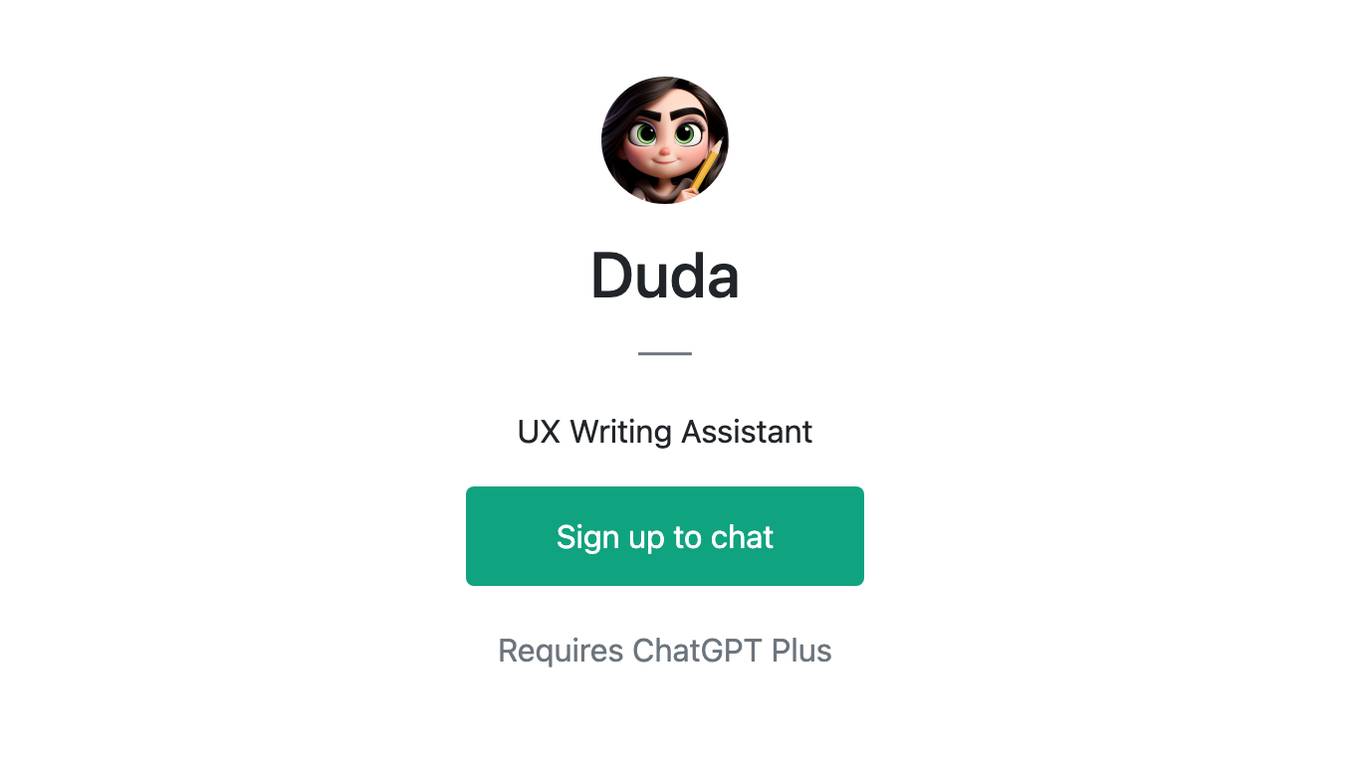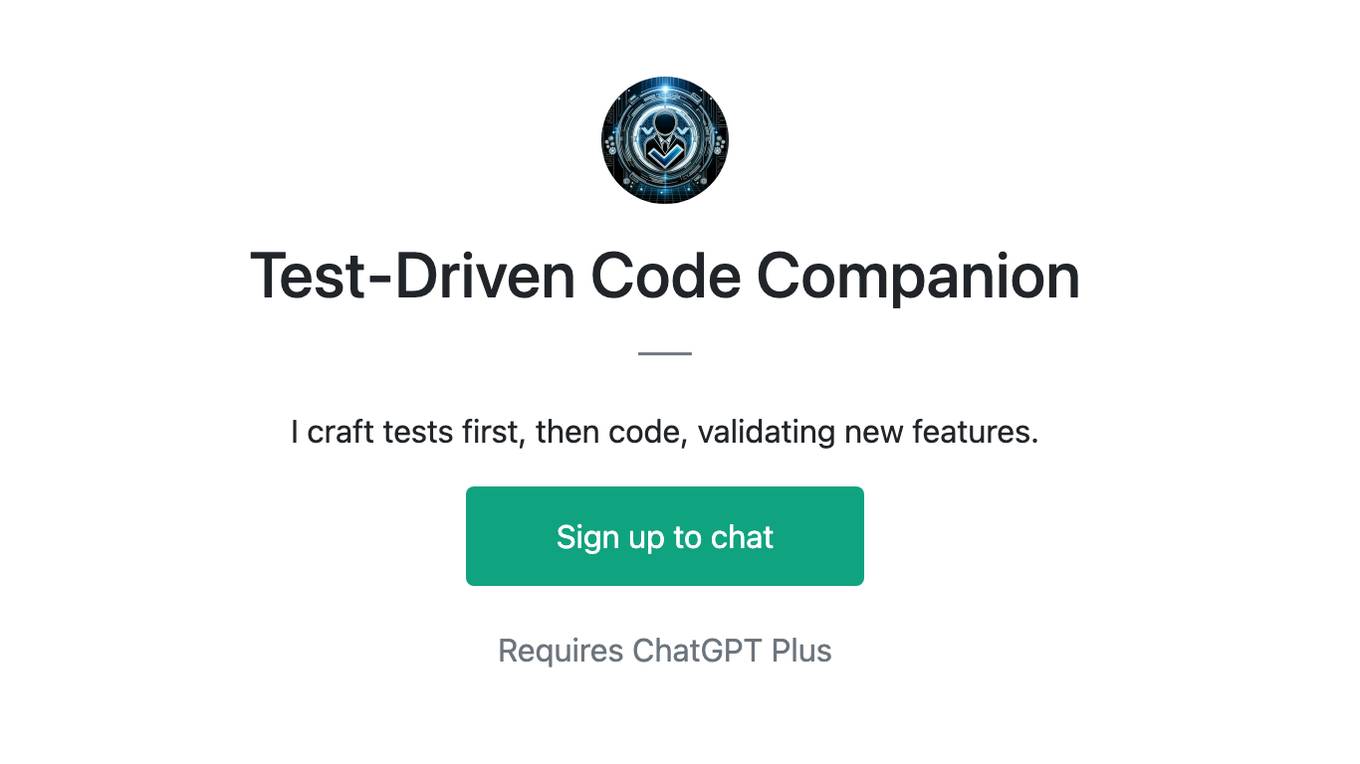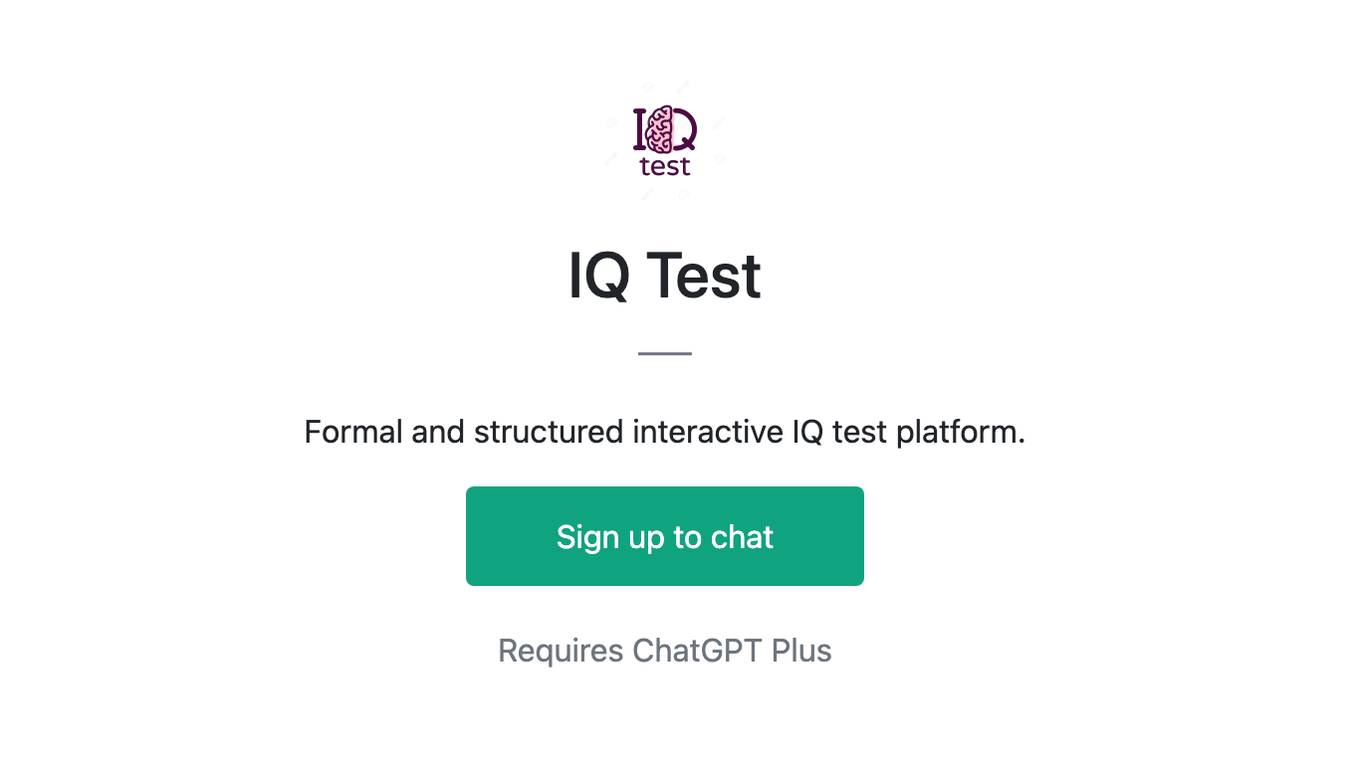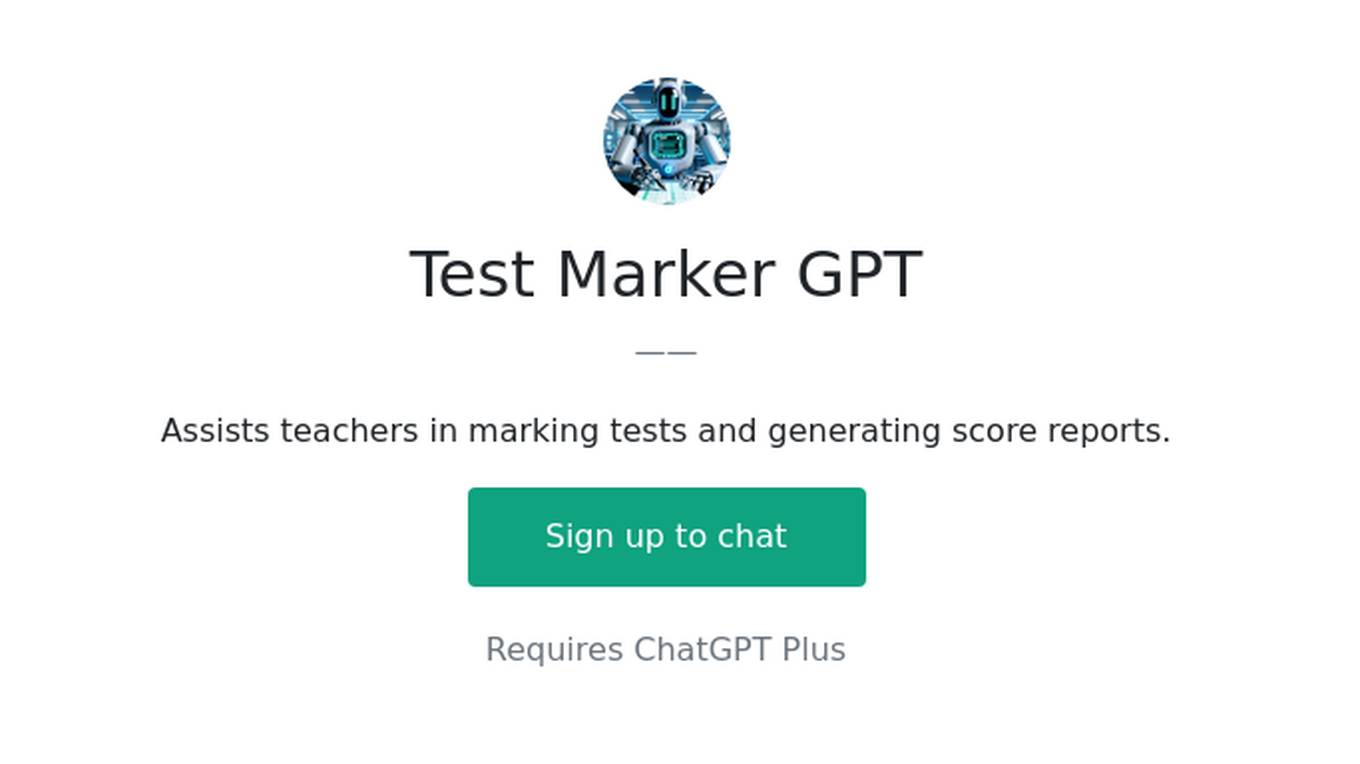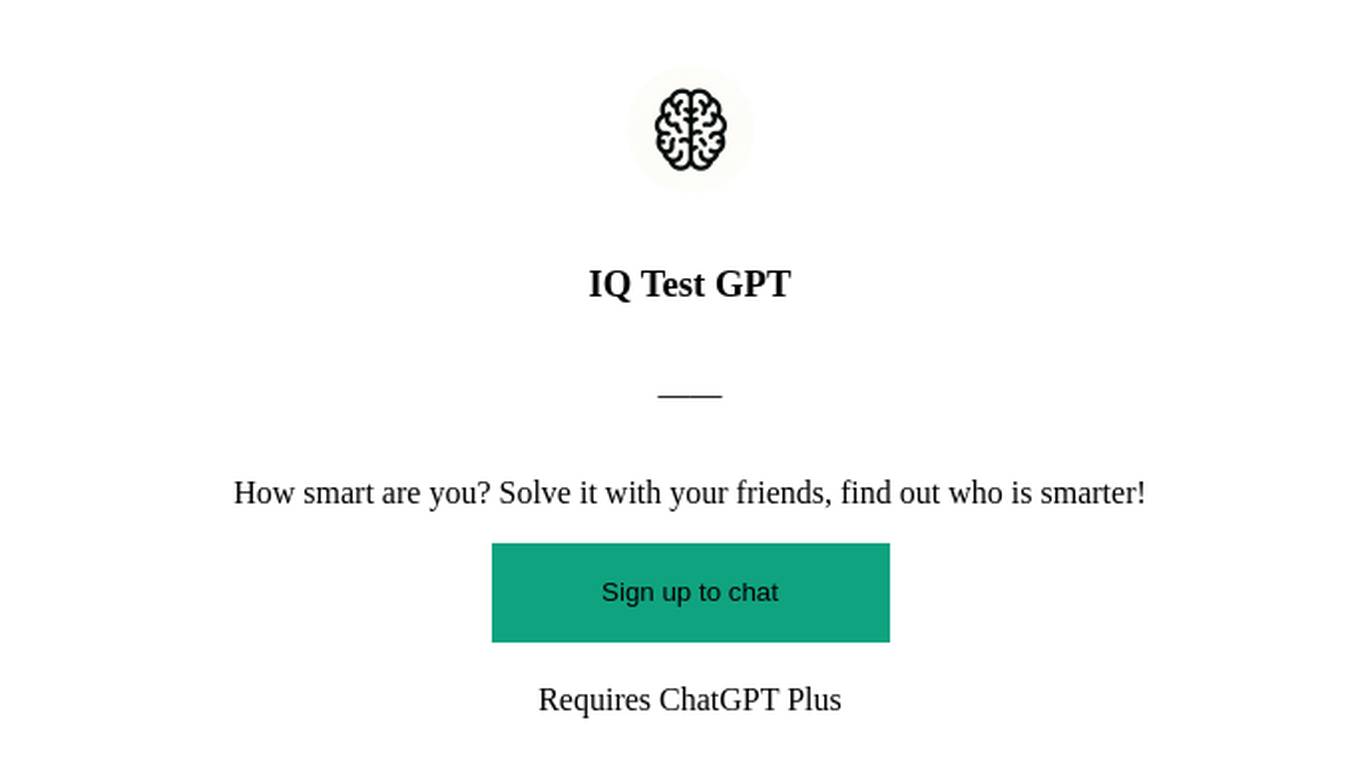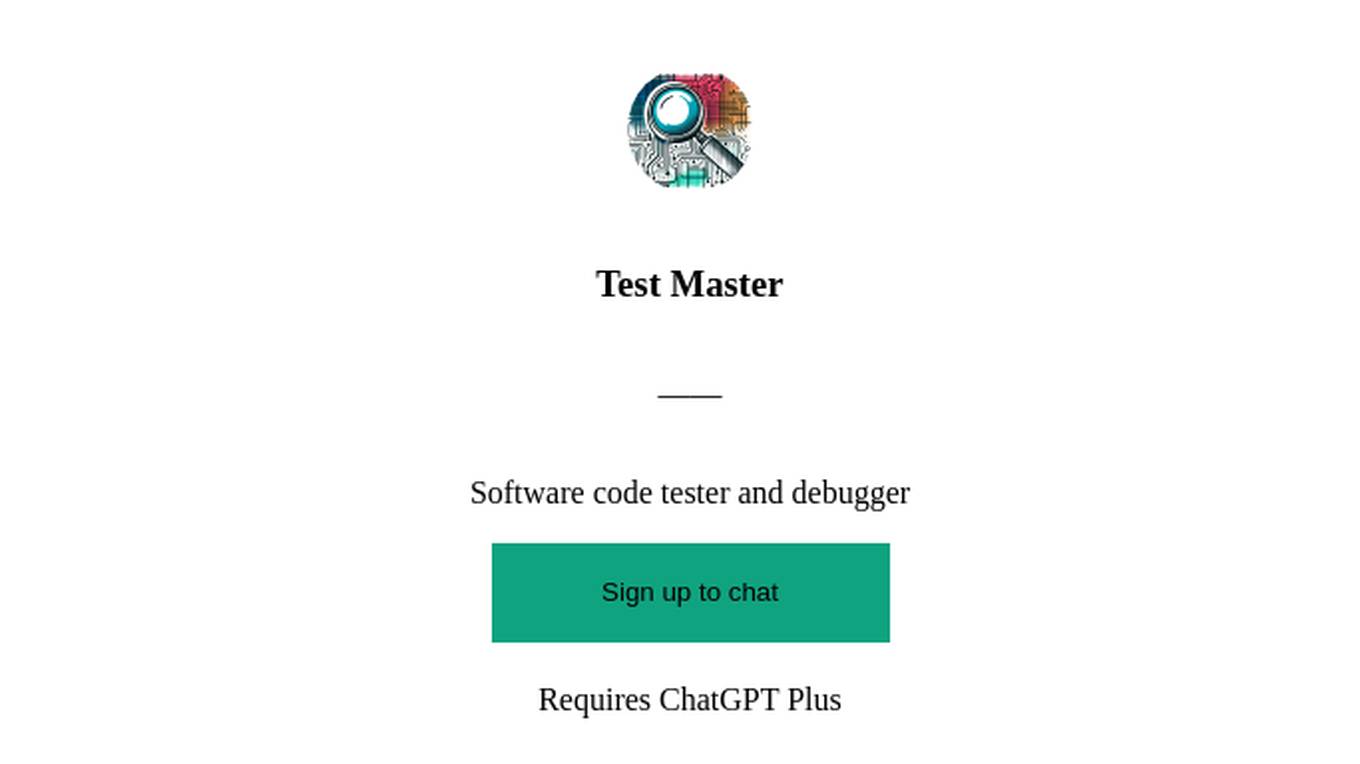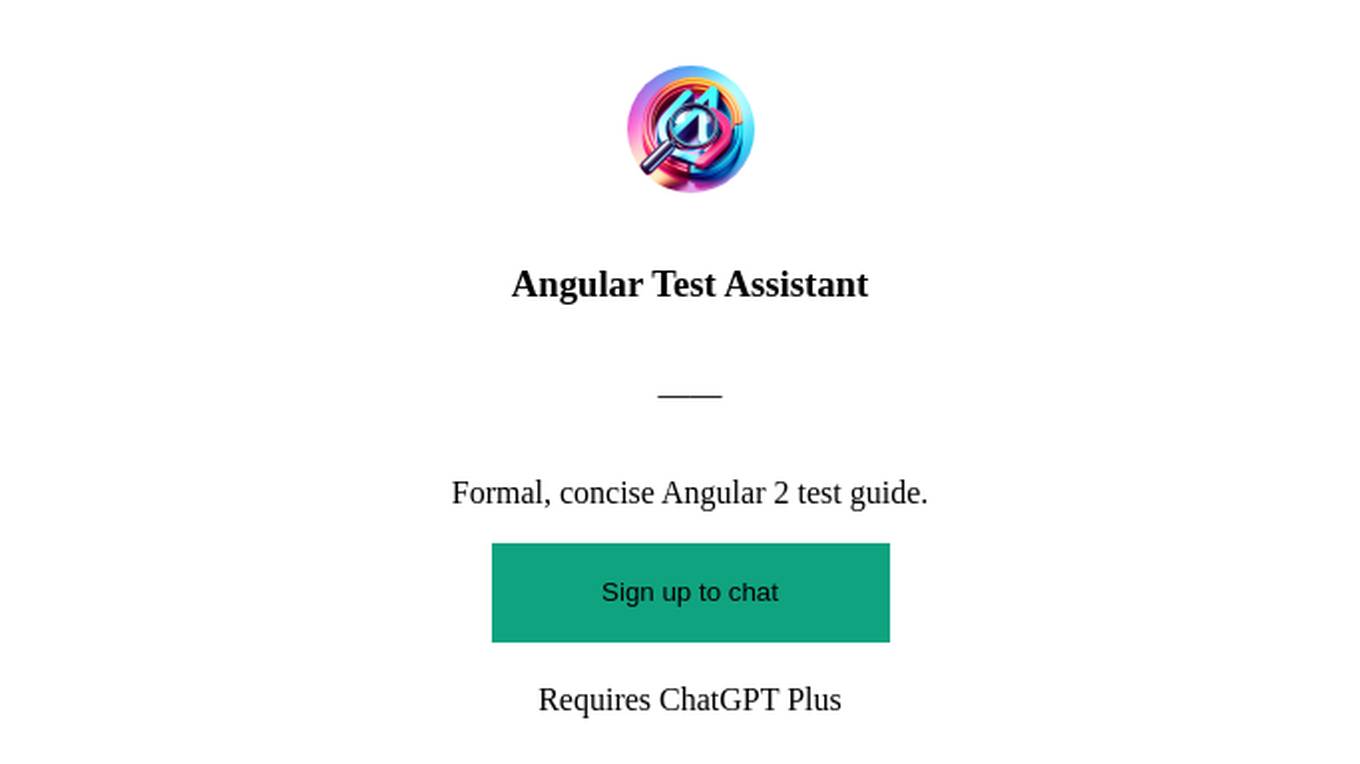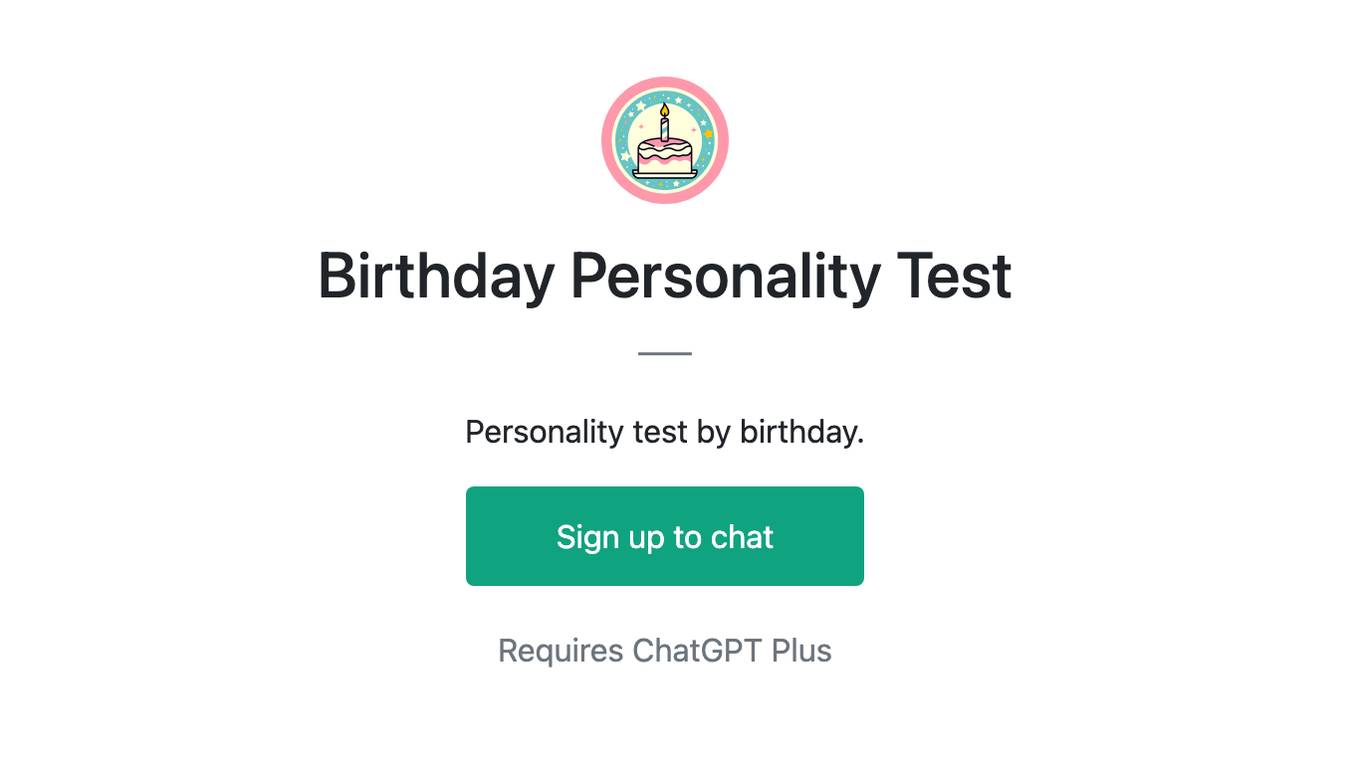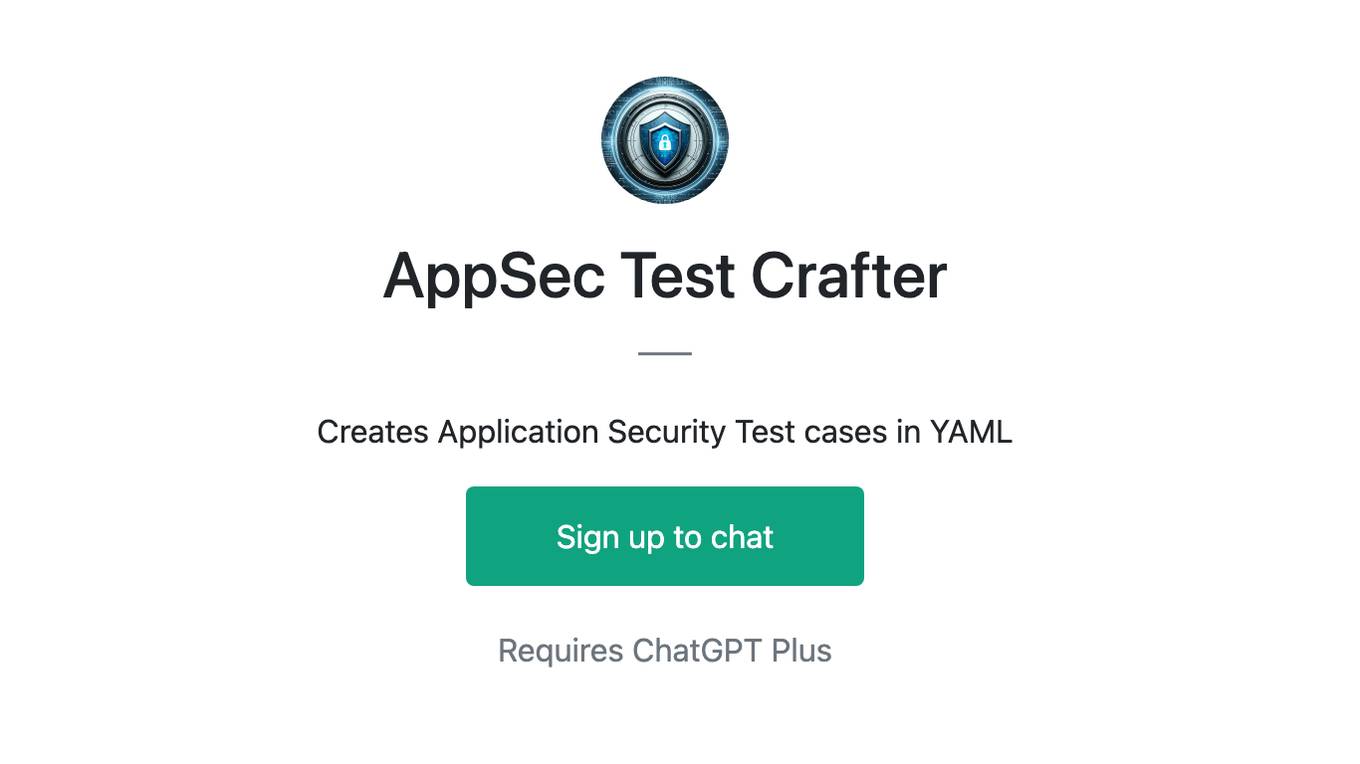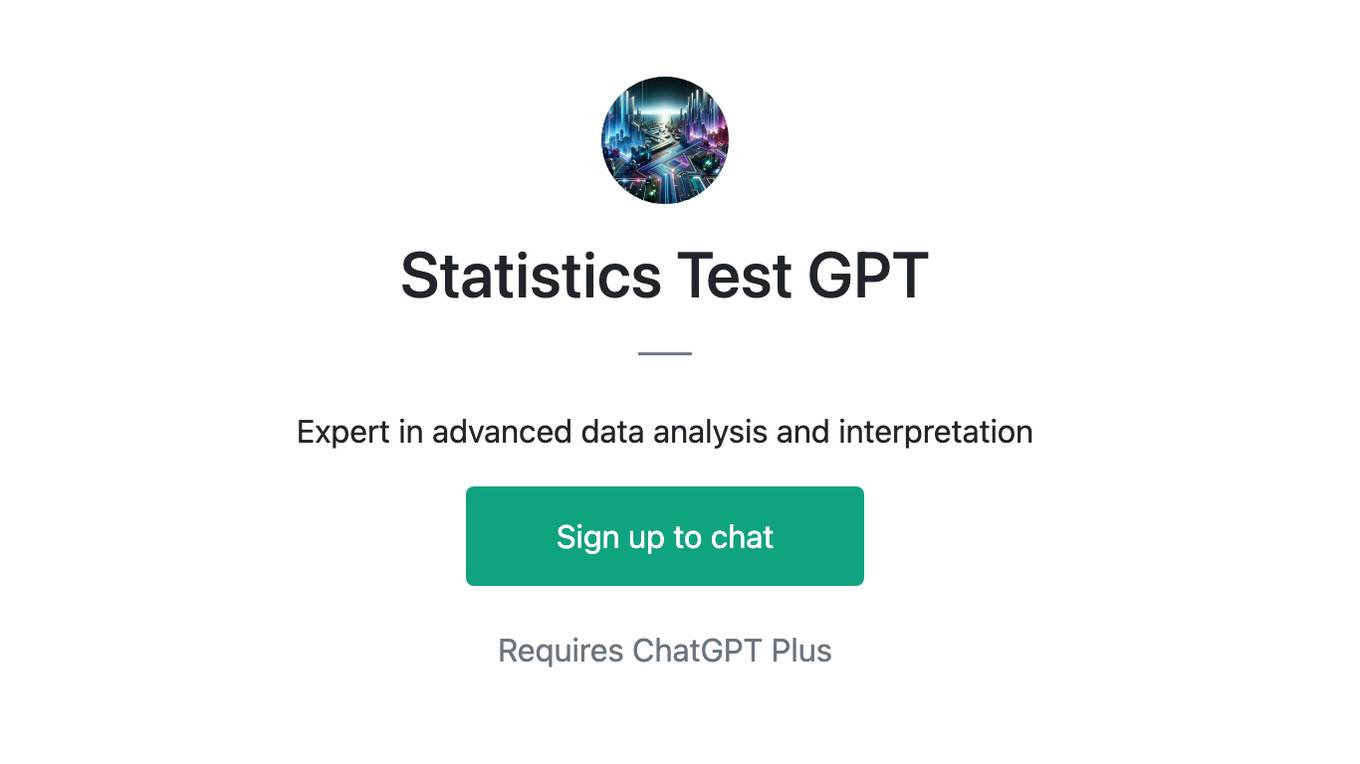Best AI tools for< Test Flow >
20 - AI tool Sites

Leapwork
Leapwork is an AI-powered test automation platform that enables users to build, manage, maintain, and analyze complex data-driven testing across various applications, including AI apps. It offers a democratized testing approach with an intuitive visual interface, composable architecture, and generative AI capabilities. Leapwork supports testing of diverse application types, web, mobile, desktop applications, and APIs. It allows for scalable testing with reusable test flows that adapt to changes in the application under test. Leapwork can be deployed on the cloud or on-premises, providing full control to the users.
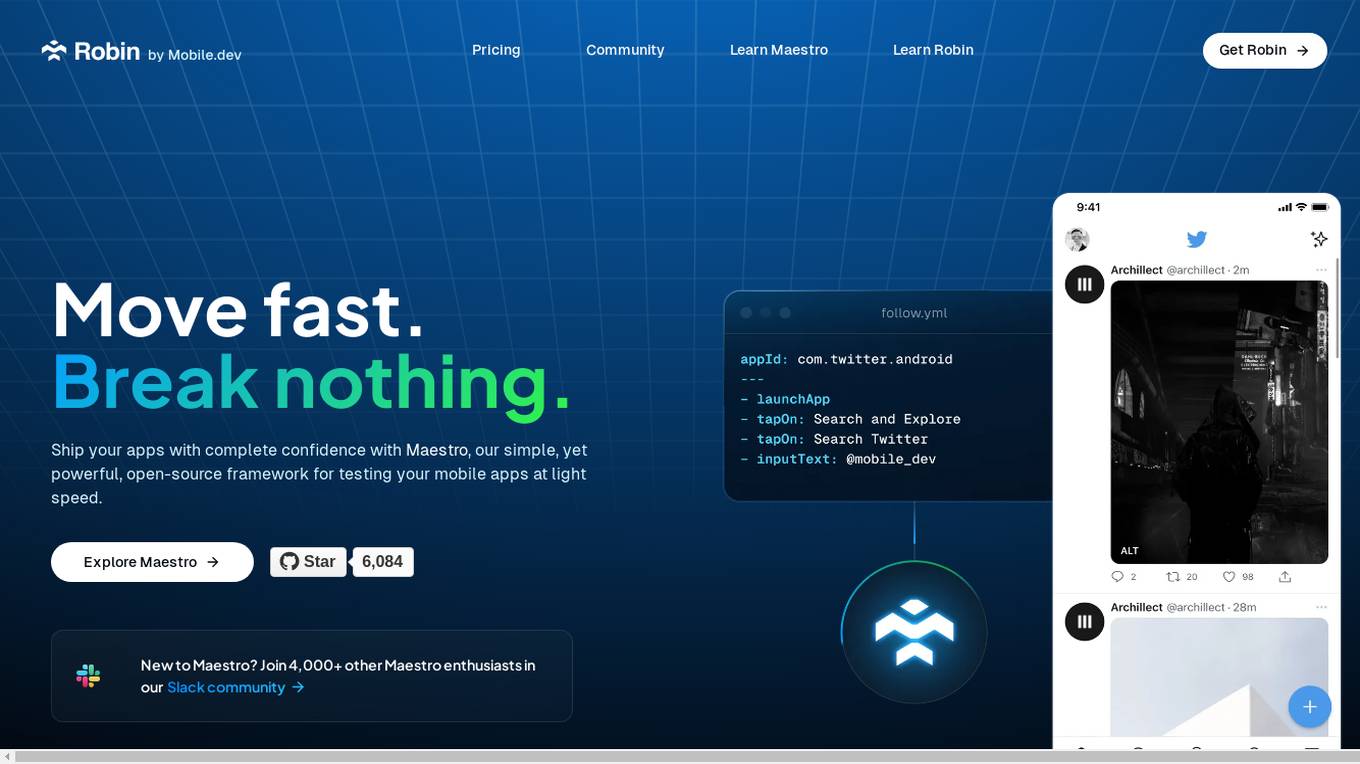
Robin
Robin by Mobile.dev is an AI-powered mobile app testing tool that allows users to test their mobile apps with confidence. It offers a simple yet powerful open-source framework called Maestro for testing mobile apps at high speed. With intuitive and reliable testing powered by AI, users can write rock-solid tests without extensive coding knowledge. Robin provides an end-to-end testing strategy, rapid testing across various devices and operating systems, and auto-healing of test flows using state-of-the-art AI models.
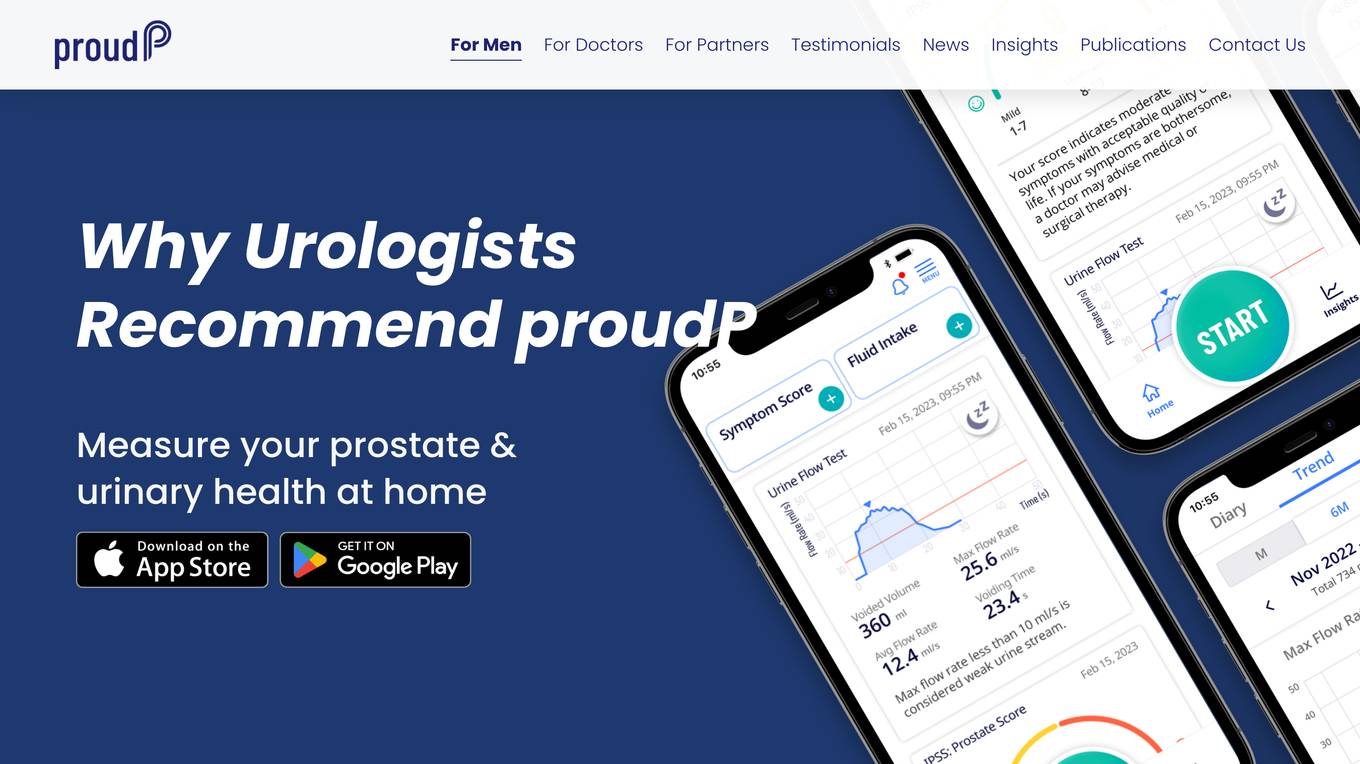
proudP
proudP is a mobile application designed to help individuals assess symptoms related to Benign Prostatic Hyperplasia (BPH) from the comfort of their homes. The app offers a simple and private urine flow test that can be conducted using just a smartphone. Users can track their symptoms, generate personalized reports, and share data with their healthcare providers to facilitate informed discussions and tailored treatments. proudP aims to provide a convenient and cost-effective solution for managing urinary health concerns, particularly for men aged 50 and older.
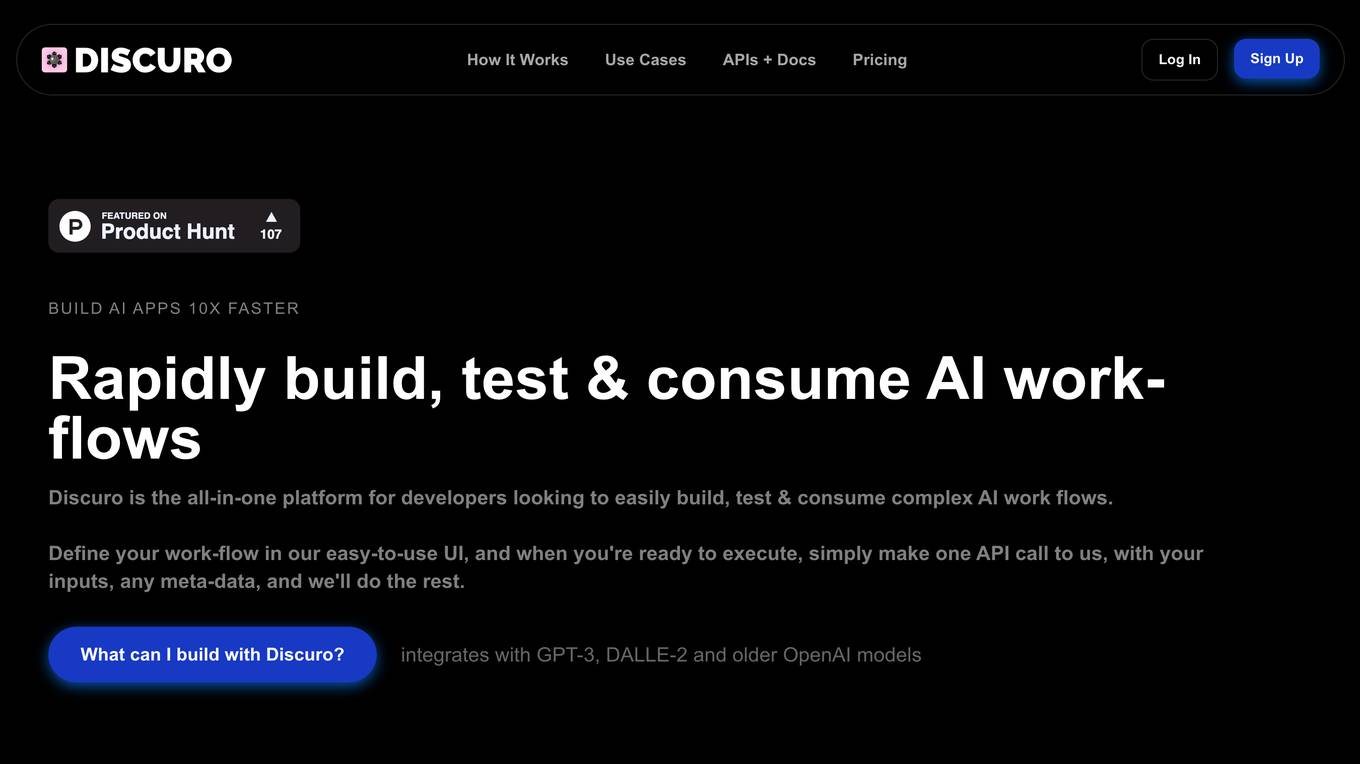
DiscuroAI
DiscuroAI is an all-in-one platform designed for developers to easily build, test, and consume complex AI workflows. Users can define their workflows in a user-friendly interface and execute them with a single API call. The platform integrates with GPT-3, DALLE-2, and other OpenAI models, allowing users to chain prompts together in powerful ways and extract output in JSON format via API. DiscuroAI enables users to build and test complex self-transforming AI workflows and datasets, execute workflows with one API call, and monitor AI usage across workflows.
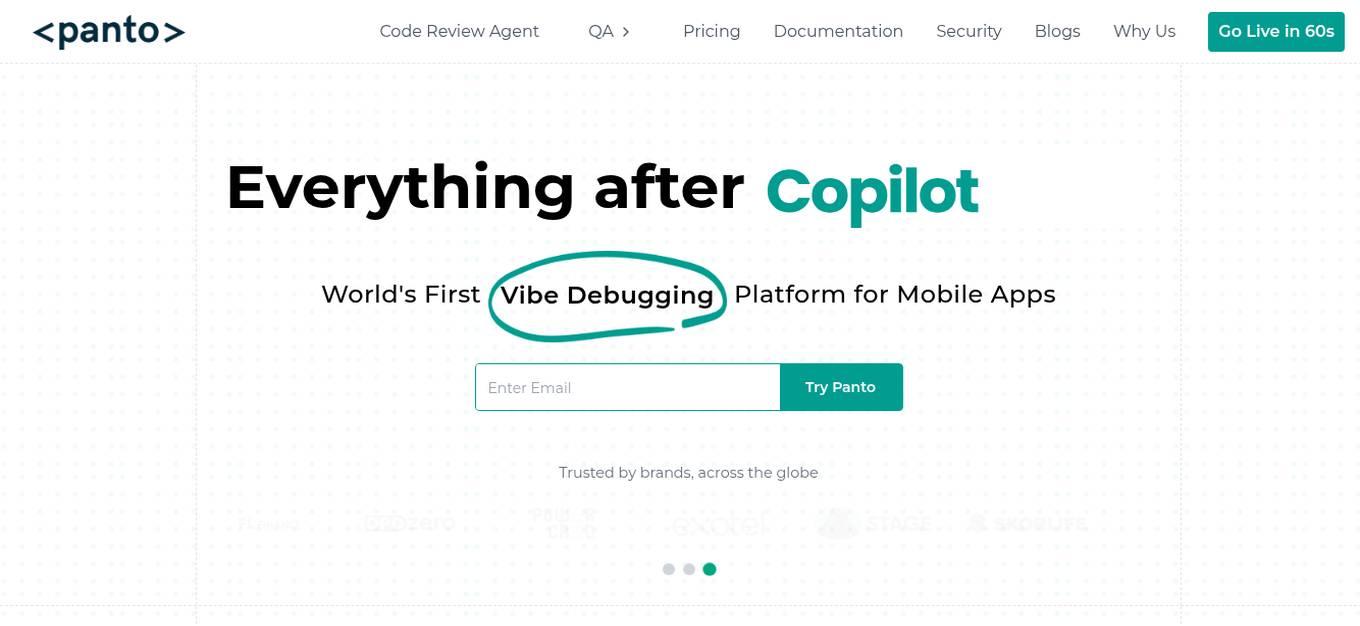
Panto AI
Panto AI is an AI automation testing platform that offers a comprehensive solution for mobile app testing, combining dynamic code reviews, code security checks, and QA automation. It allows users to create, execute, and run mobile test cases in natural language, ensuring reliable and efficient testing processes. With features like self-healing automation, real device testing, and deep failure visibility, Panto AI aims to streamline the QA process and enhance app quality. The platform is designed to be platform-agnostic and supports various integrations, making it suitable for diverse mobile app environments.
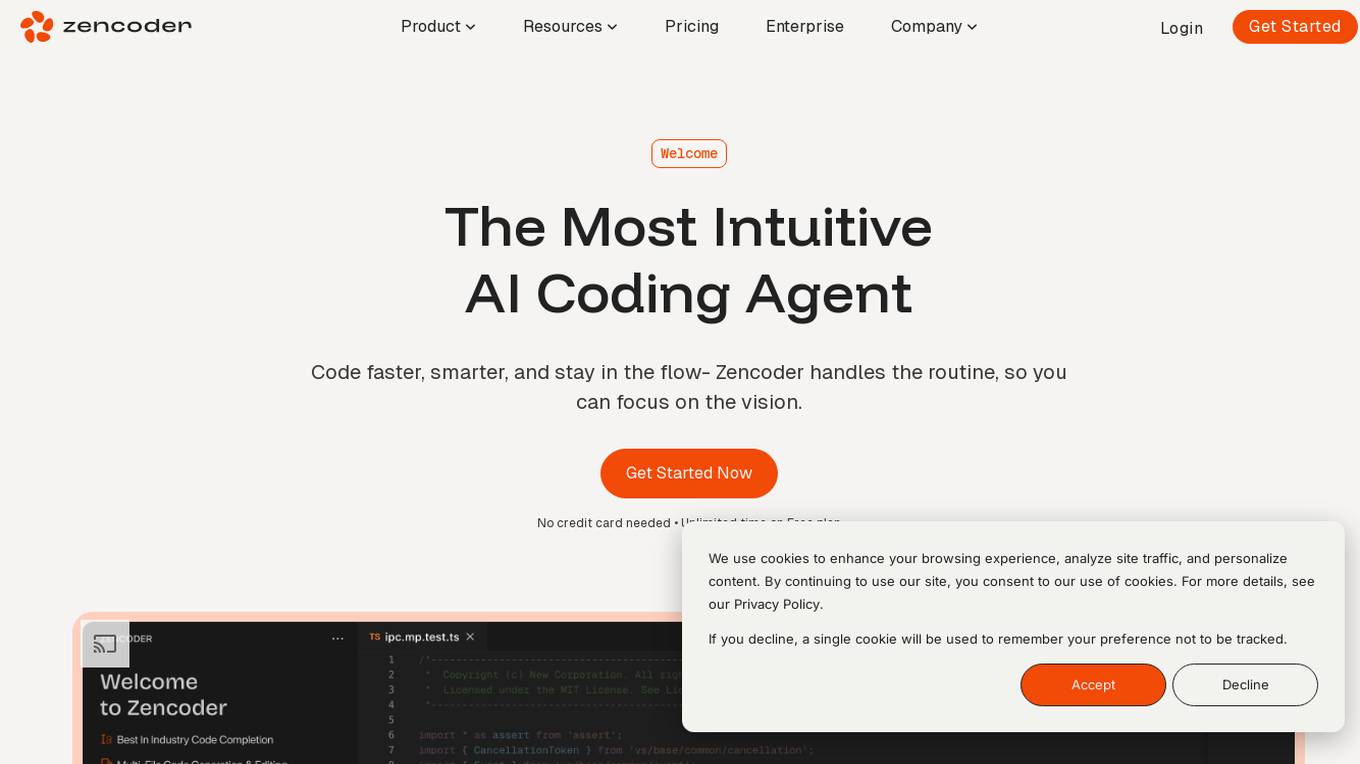
Zencoder
Zencoder is an intuitive AI coding agent designed to assist developers in coding tasks by leveraging advanced AI workflows and intelligent systems. It offers features like Repo Grokking for deep code insights, AI Agents for streamlining development processes, and capabilities such as code generation, chat assistance, code completion, and more. Zencoder aims to enhance software development efficiency, code quality, and project alignment by integrating seamlessly into developers' workflows.
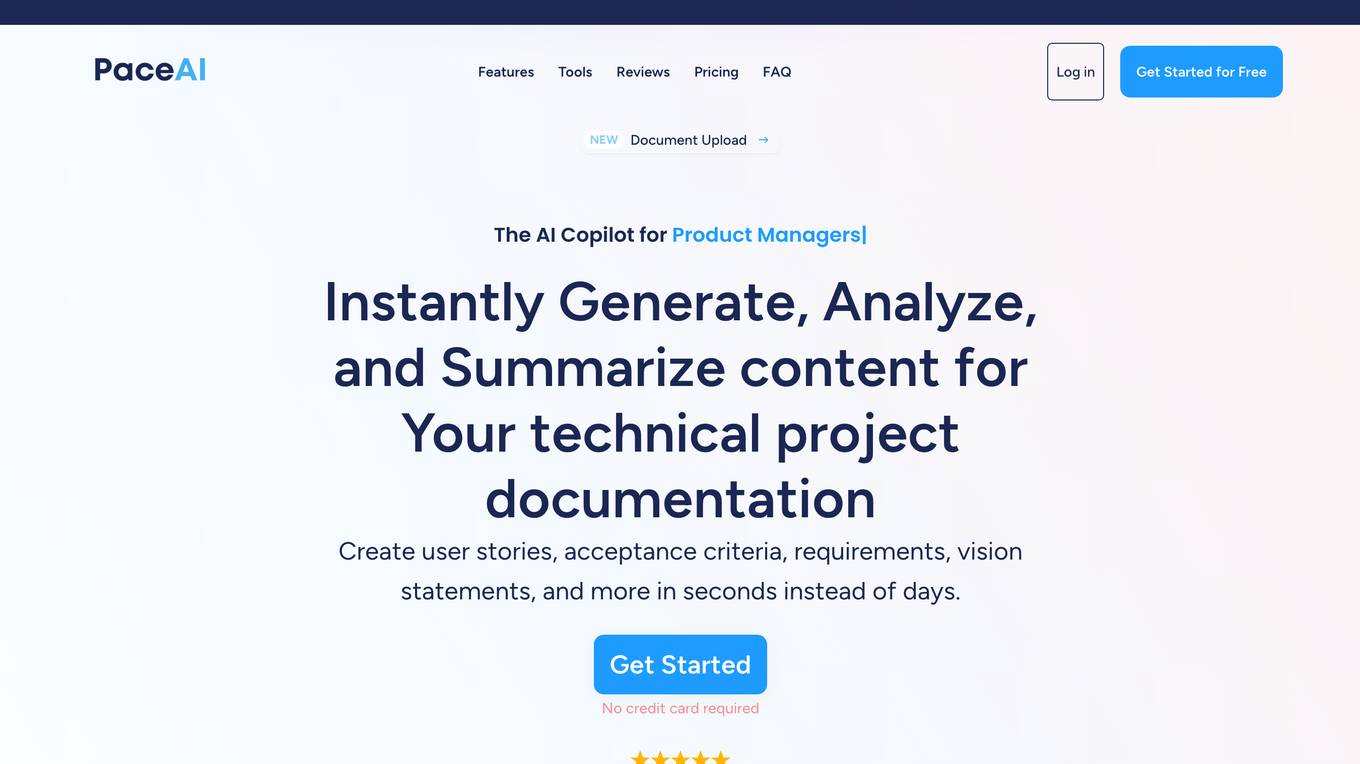
PaceAI
PaceAI is an AI assistant designed for IT professionals to generate, analyze, and simplify software documentation on IT projects. It uses advanced generative AI models to understand the user's vision, analyze requirements, and automatically generate clear, concise software documentation tailored to the specific IT project. With 35+ powerful AI tools, PaceAI assists in every phase of the project, from planning to deployment.
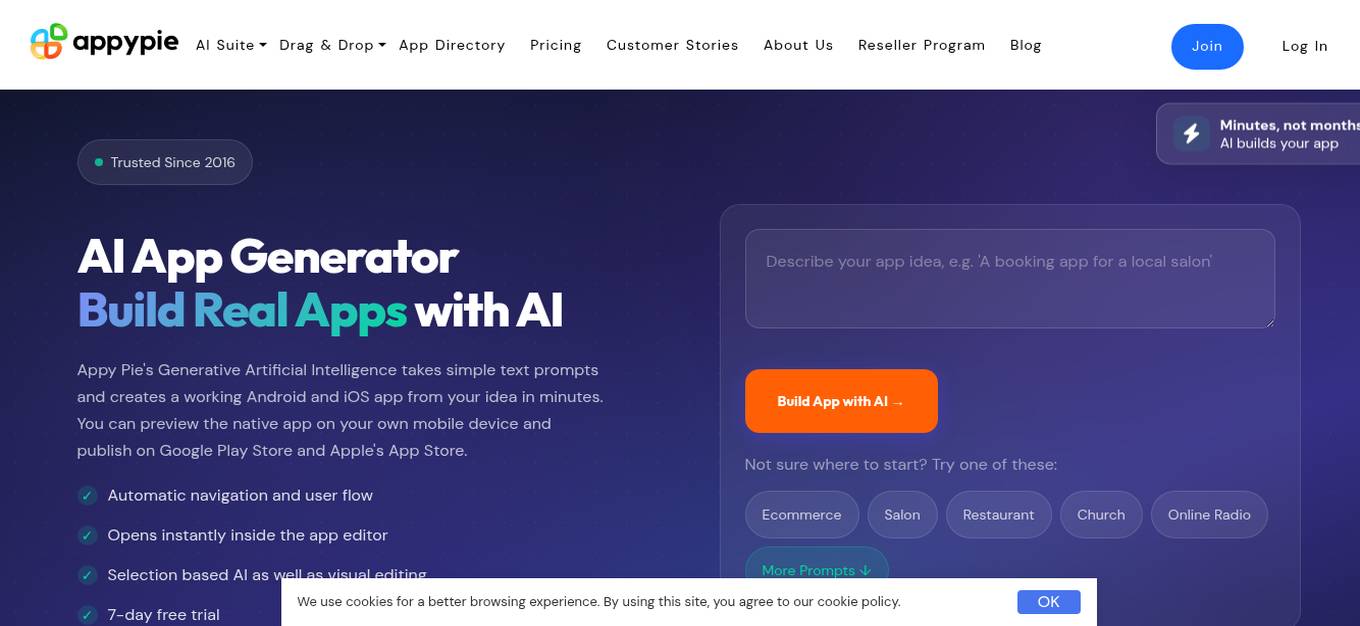
AI App Generator
The AI App Generator by Appy Pie is a platform that utilizes generative artificial intelligence to develop Android and iOS mobile applications based on simple text prompts. Users can describe their app ideas in plain language, and the AI automatically generates app structures, screens, navigation flows, and content. The platform offers a visual editor for customization, real-time updates, security compliance, and publishing support for Google Play Store and Apple's App Store. It is designed to cater to startups, small businesses, educators, agencies, and non-technical founders looking to create mobile apps without coding expertise.

LivePlan
LivePlan is a business plan software that offers performance tracking and financial forecasting tools to help small businesses plan, launch, and grow successfully. It provides a user-friendly interface with AI-powered features, such as the LivePlan Assistant, to guide users through creating comprehensive business plans and financial reports. LivePlan also offers interactive demos, integrations with accounting software like QuickBooks and Xero, and a range of solutions tailored for different business stages and needs. With over 1 million users, LivePlan has helped entrepreneurs and business owners achieve their goals by providing tools and resources to streamline the planning process and improve decision-making.
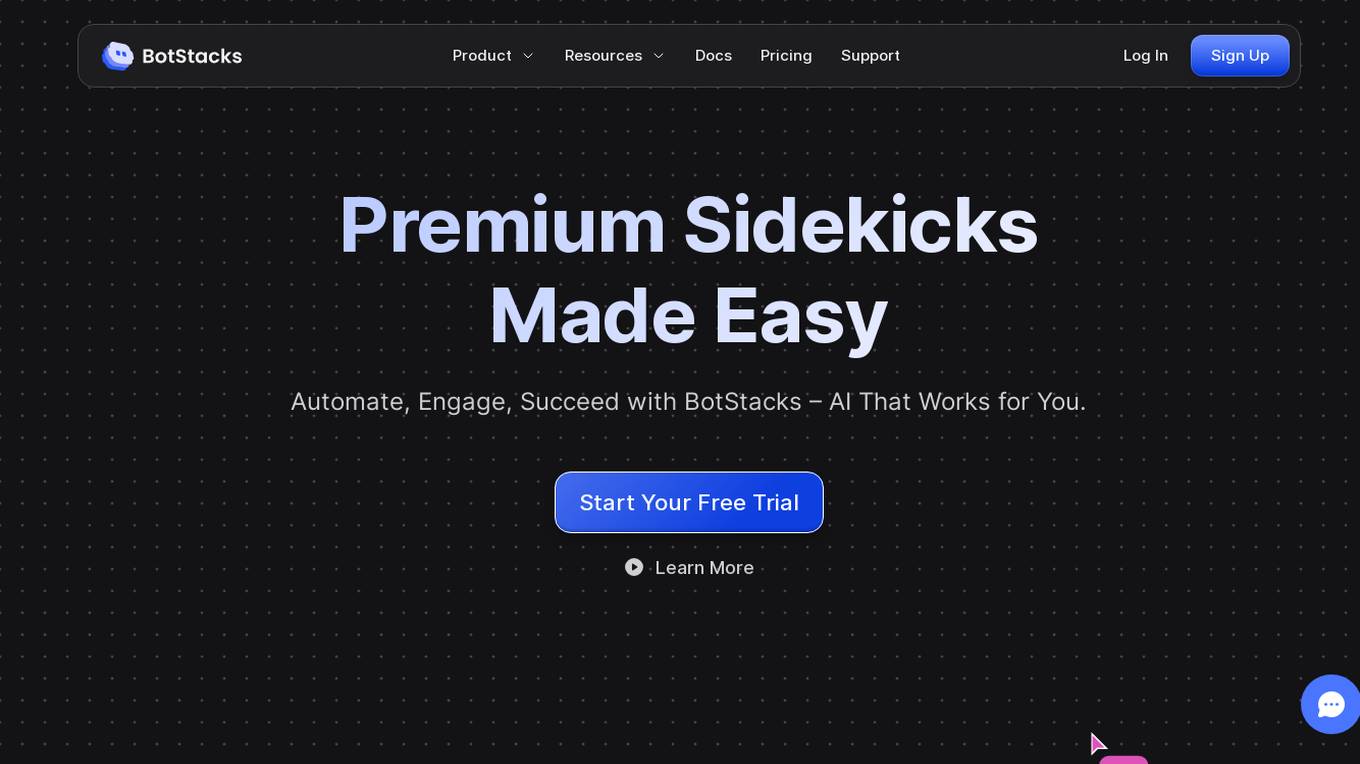
BotStacks
BotStacks is a conversational AI solution that offers premium AI sidekicks to automate, engage, and succeed. It provides a platform for designing, building, and deploying AI chatbots with advanced technology accessible to everyone. With features like canvas designer, knowledge base, and chat SDKs, BotStacks empowers users to create personalized and scalable AI assistants. The application focuses on easy design flow, seamless integration, customization, scalability, and accessibility for non-technical users, making it a gateway to the future of conversational AI.
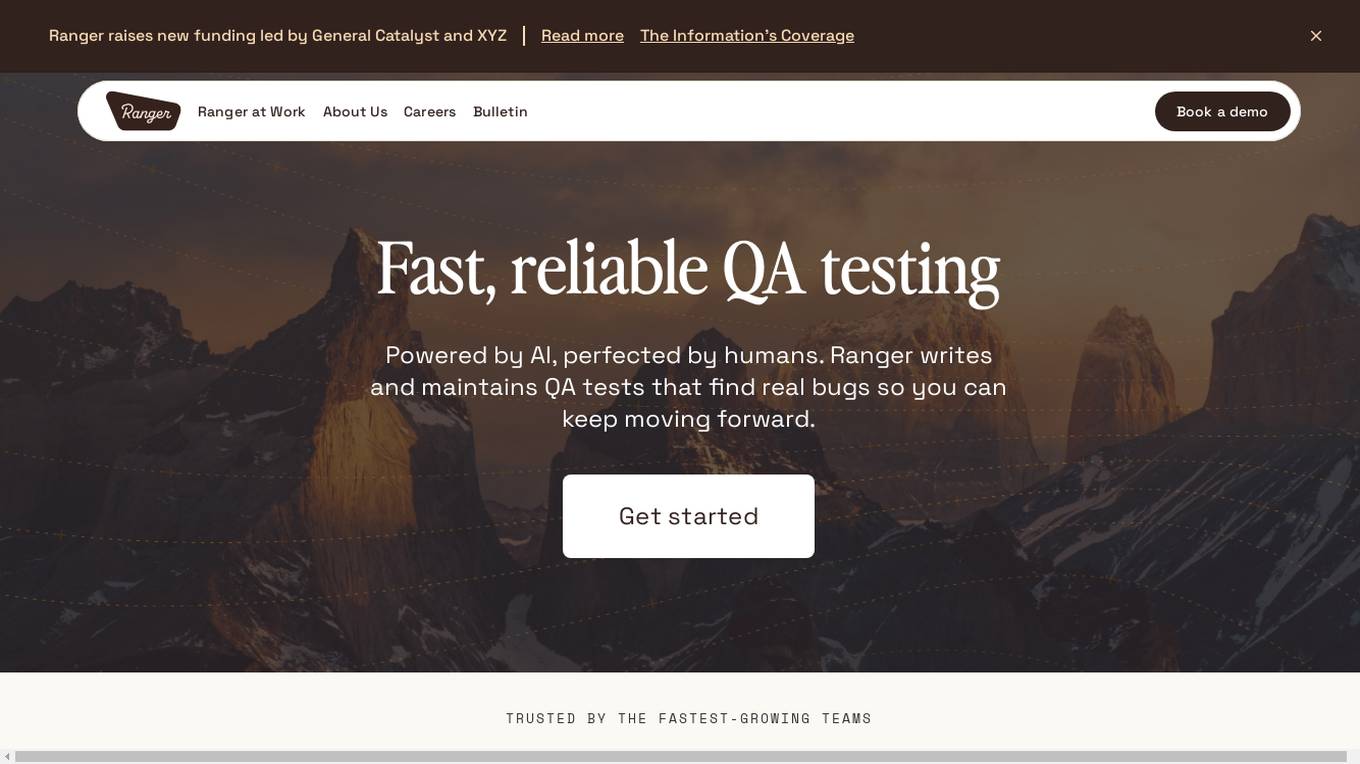
Ranger
Ranger is a fast and reliable QA testing tool powered by AI and perfected by humans. It writes and maintains QA tests to find real bugs, allowing teams to move forward confidently. Trusted by fast-growing teams, Ranger handles every facet of QA testing, saving time and enabling faster product launches. With a focus on catching real bugs and maintaining core flows, Ranger helps teams maintain high quality while accelerating engineering velocity.
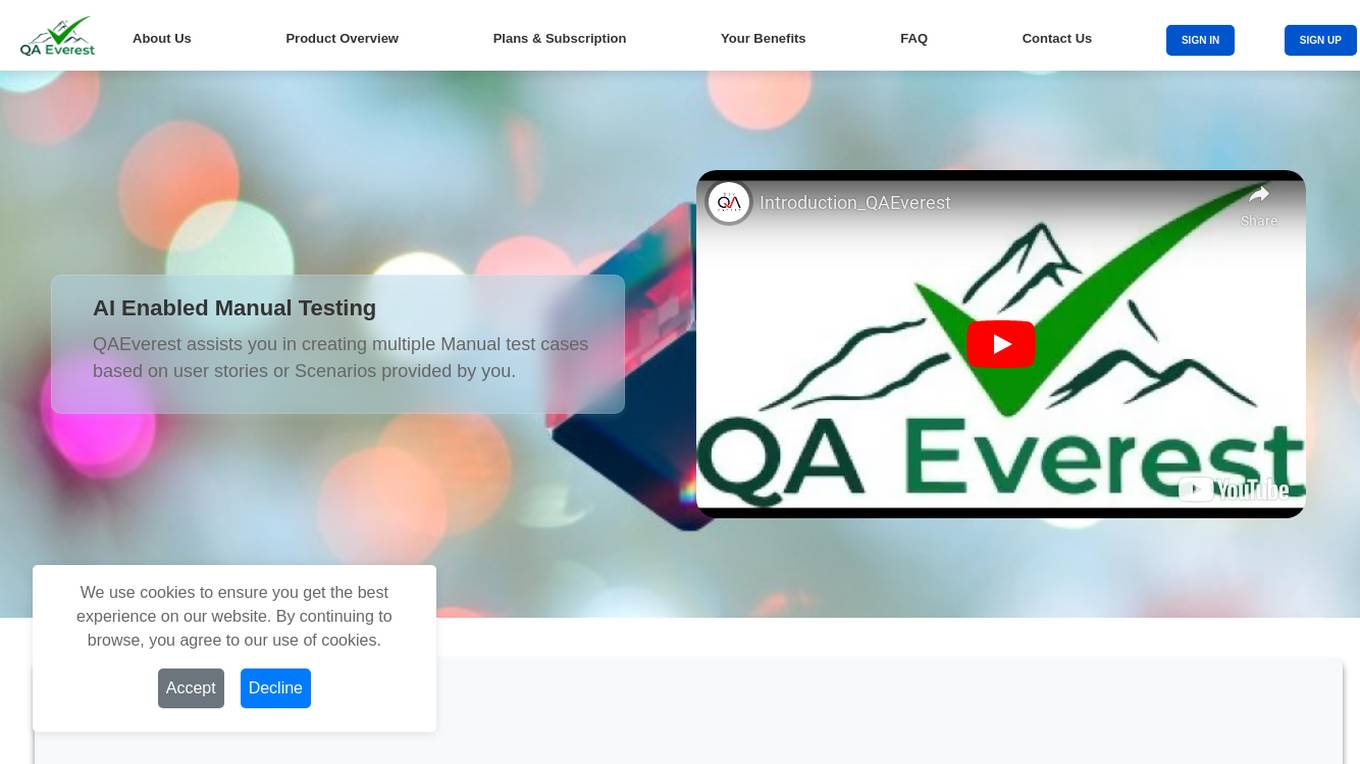
AI Generated Test Cases
AI Generated Test Cases is an innovative tool that leverages artificial intelligence to automatically generate test cases for software applications. By utilizing advanced algorithms and machine learning techniques, this tool can efficiently create a comprehensive set of test scenarios to ensure the quality and reliability of software products. With AI Generated Test Cases, software development teams can save time and effort in the testing phase, leading to faster release cycles and improved overall productivity.
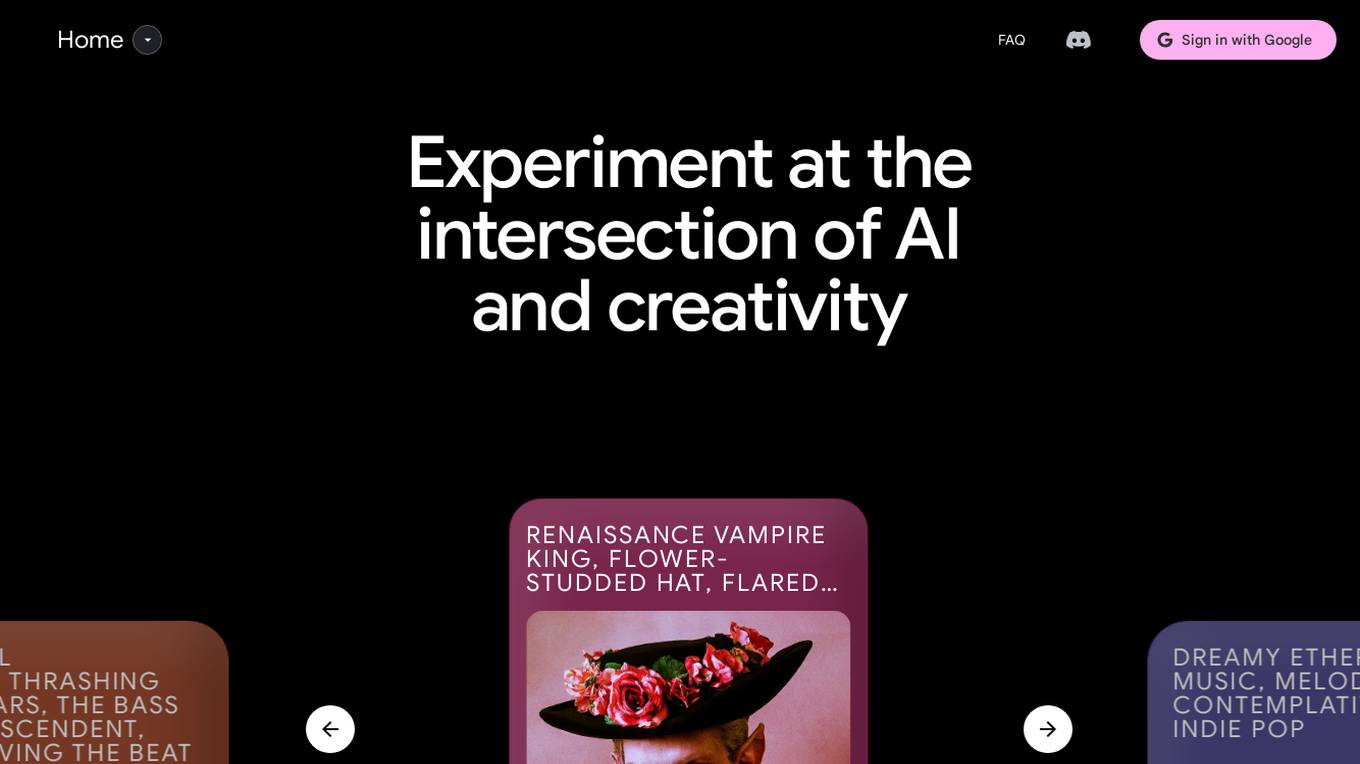
AI Test Kitchen
AI Test Kitchen is a website that provides a variety of AI-powered tools for creative professionals. These tools can be used to generate images, music, and text, as well as to explore different creative concepts. The website is designed to be a place where users can experiment with AI and learn how to use it to enhance their creative process.
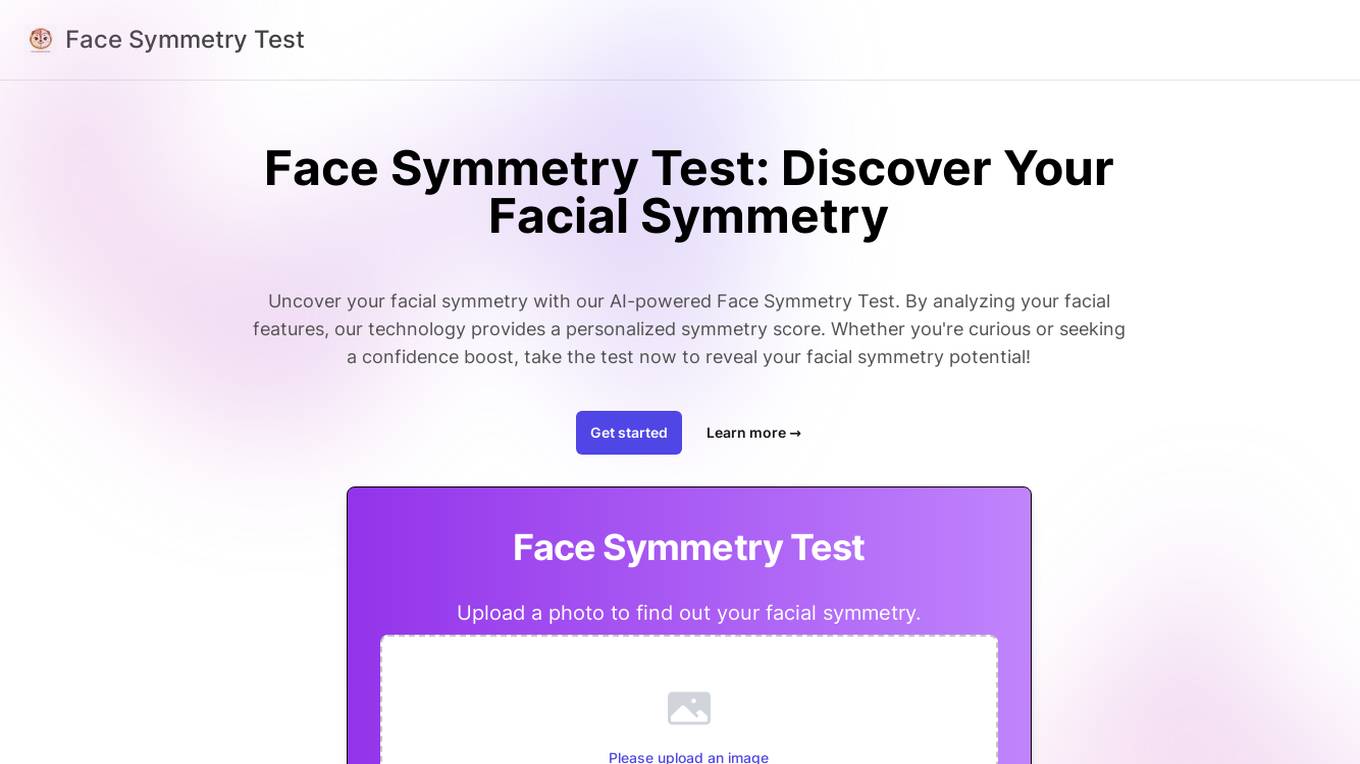
Face Symmetry Test
Face Symmetry Test is an AI-powered tool that analyzes the symmetry of facial features by detecting key landmarks such as eyes, nose, mouth, and chin. Users can upload a photo to receive a personalized symmetry score, providing insights into the balance and proportion of their facial features. The tool uses advanced AI algorithms to ensure accurate results and offers guidelines for improving the accuracy of the analysis. Face Symmetry Test is free to use and prioritizes user privacy and security by securely processing uploaded photos without storing or sharing data with third parties.
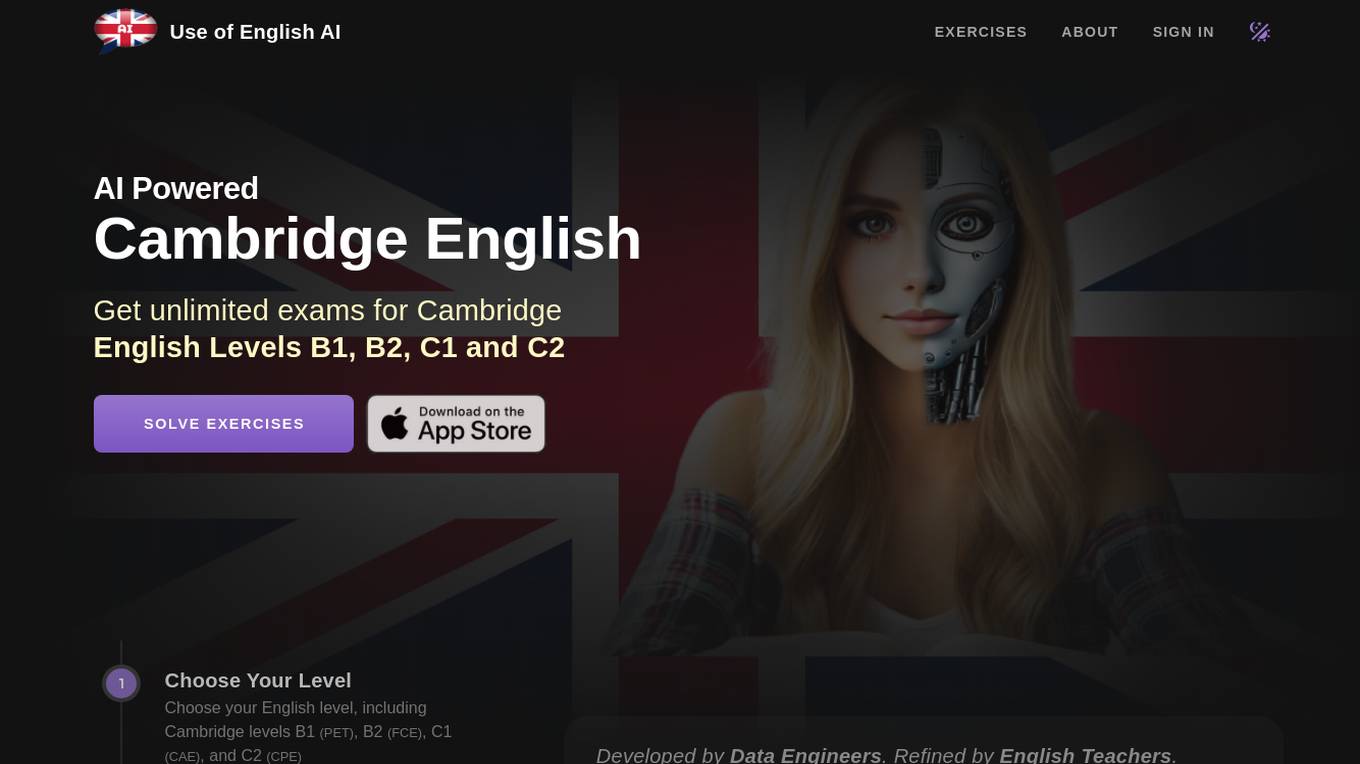
Cambridge English Test AI
The AI-powered Cambridge English Test platform offers exercises for English levels B1, B2, C1, and C2. Users can select exercise types such as Reading and Use of English, including activities like Open Cloze, Multiple Choice, Word Formation, and more. The AI, developed by Shining Apps in partnership with Use of English PRO, provides a unique learning experience by generating exercises from a database of over 5000 official exams. It uses advanced Natural Language Processing (NLP) to understand context, tweak exercises, and offer detailed feedback for effective learning.
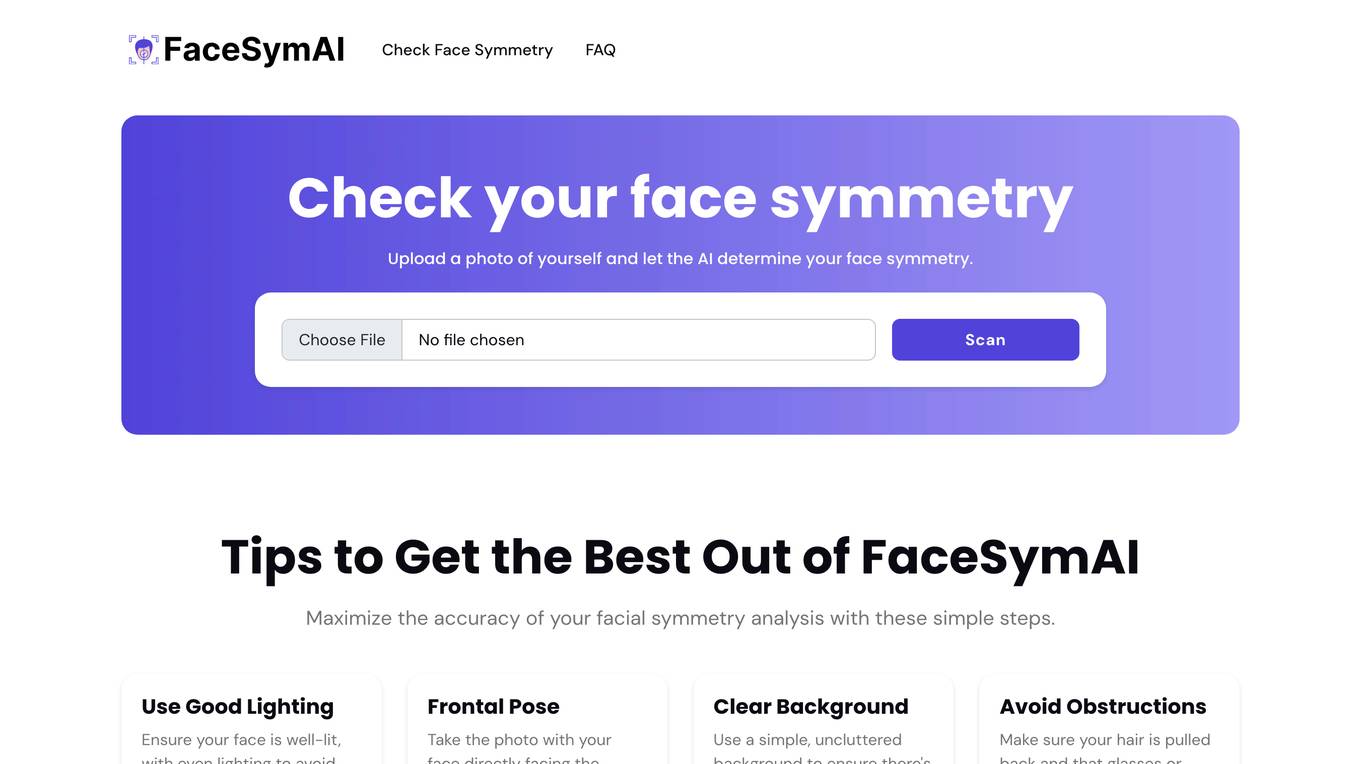
FaceSymAI
FaceSymAI is an online tool that utilizes advanced AI algorithms to analyze and determine the symmetry of your face. By uploading a photo, the AI examines your facial features, including the eyes, nose, mouth, and overall structure, to provide an accurate assessment of your facial symmetry. The analysis is based on mathematical and statistical methods, ensuring reliable and precise results. FaceSymAI is designed to be user-friendly and accessible, offering a free service to everyone. The uploaded photos are treated with utmost confidentiality and are not stored or used for any other purpose, ensuring your privacy is respected.
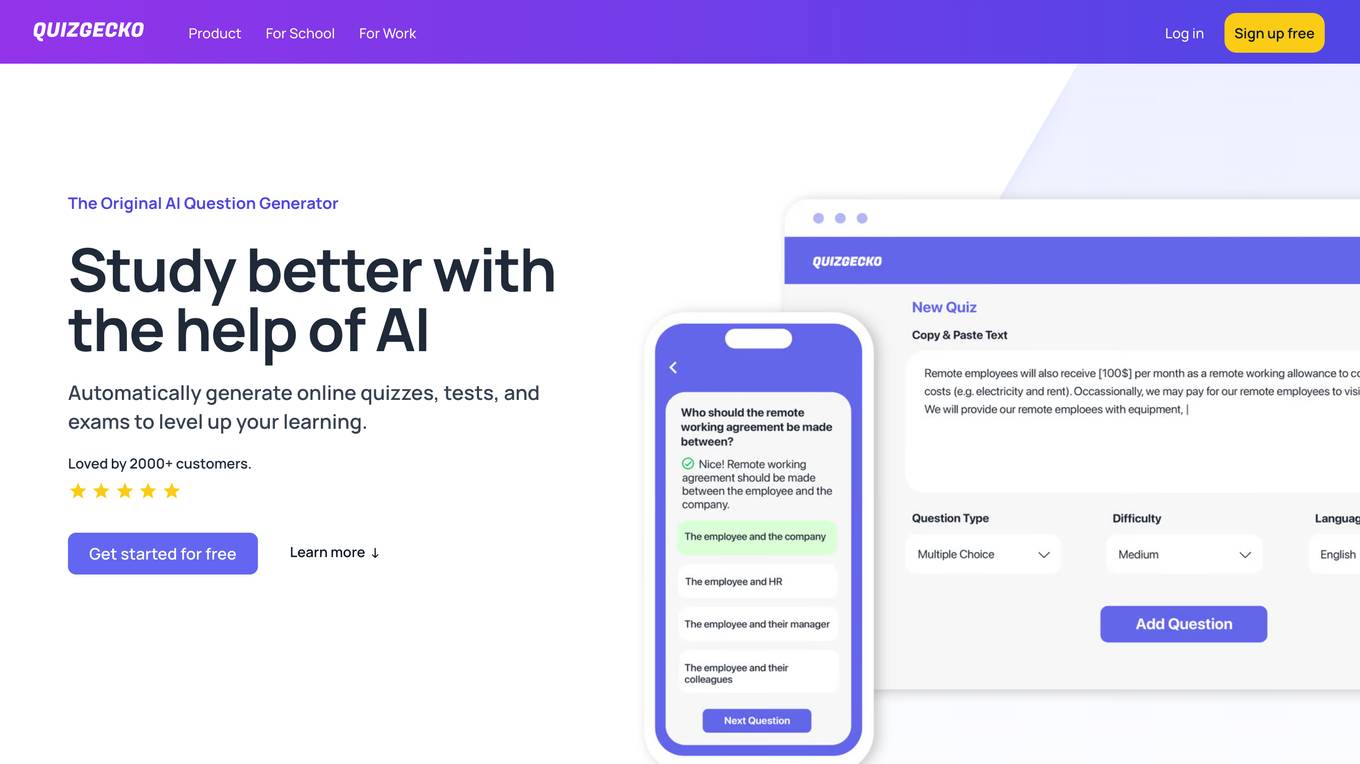
QuizGecko
Quizgecko.com is a website that provides online quizzes and trivia games for users to test their knowledge and have fun. Users can access a wide range of quiz topics, including general knowledge, pop culture, history, science, and more. The platform offers a user-friendly interface that allows players to easily navigate through different quiz categories and challenges. With a focus on entertainment and education, quizgecko.com aims to engage users of all ages in interactive and engaging quiz experiences.
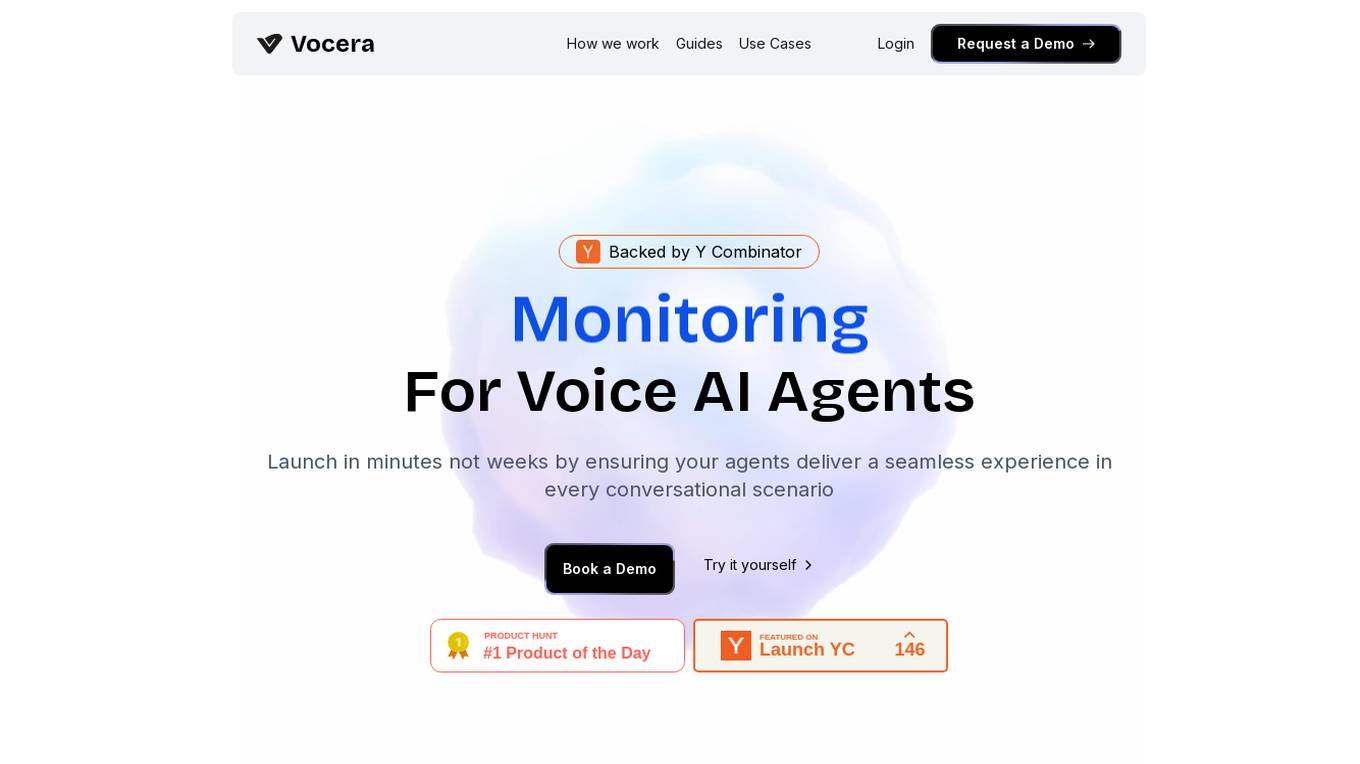
Vocera
Vocera is an AI voice agent testing tool that allows users to test and monitor voice AI agents efficiently. It enables users to launch voice agents in minutes, ensuring a seamless conversational experience. With features like testing against AI-generated datasets, simulating scenarios, and monitoring AI performance, Vocera helps in evaluating and improving voice agent interactions. The tool provides real-time insights, detailed logs, and trend analysis for optimal performance, along with instant notifications for errors and failures. Vocera is designed to work for everyone, offering an intuitive dashboard and data-driven decision-making for continuous improvement.
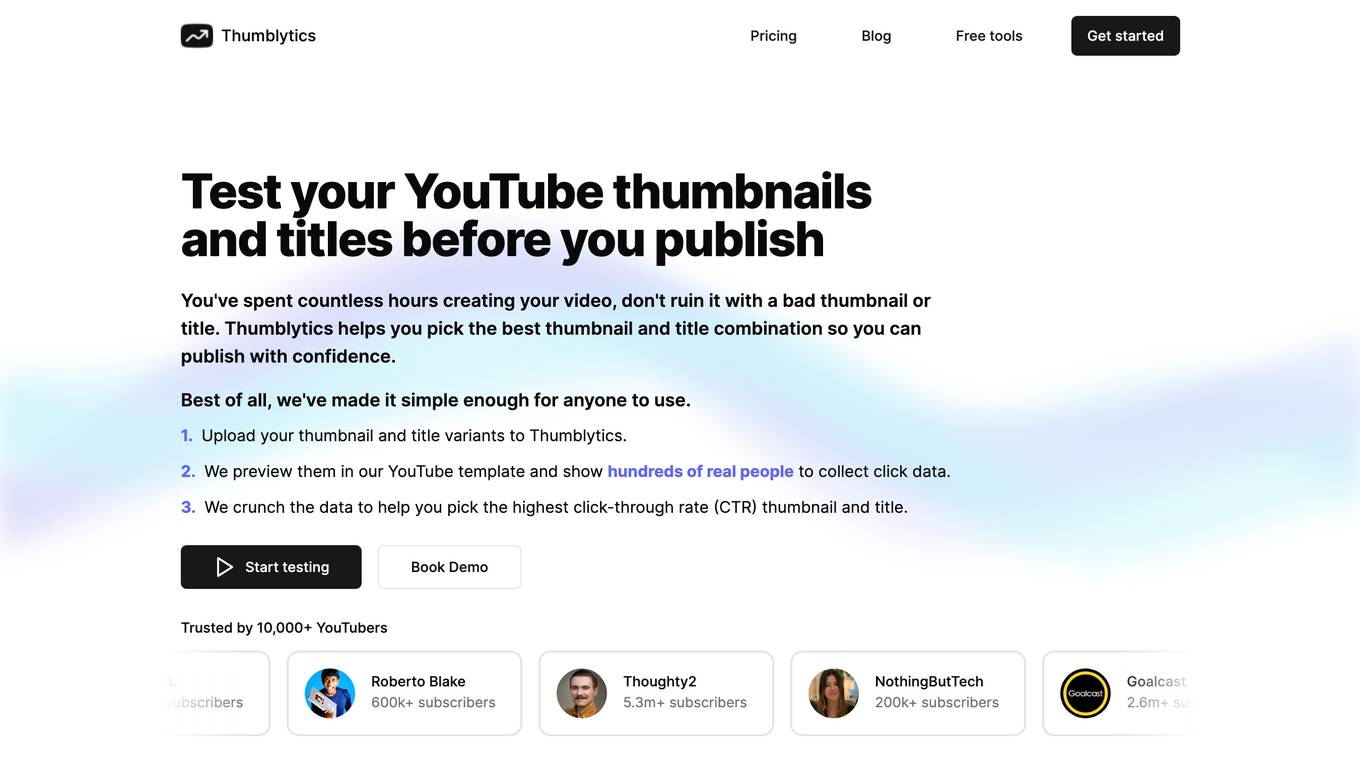
Thumblytics
Thumblytics is a tool that helps YouTubers test their YouTube thumbnails and titles before they publish them. It uses a combination of machine learning and human feedback to help users choose the best thumbnail and title combination for their videos. Thumblytics is designed to be easy to use, even for beginners. Users simply upload their thumbnail and title variants to Thumblytics, and the tool will preview them in a YouTube template and show them to hundreds of real people to collect click data. Thumblytics then crunches the data to help users pick the highest click-through rate (CTR) thumbnail and title.
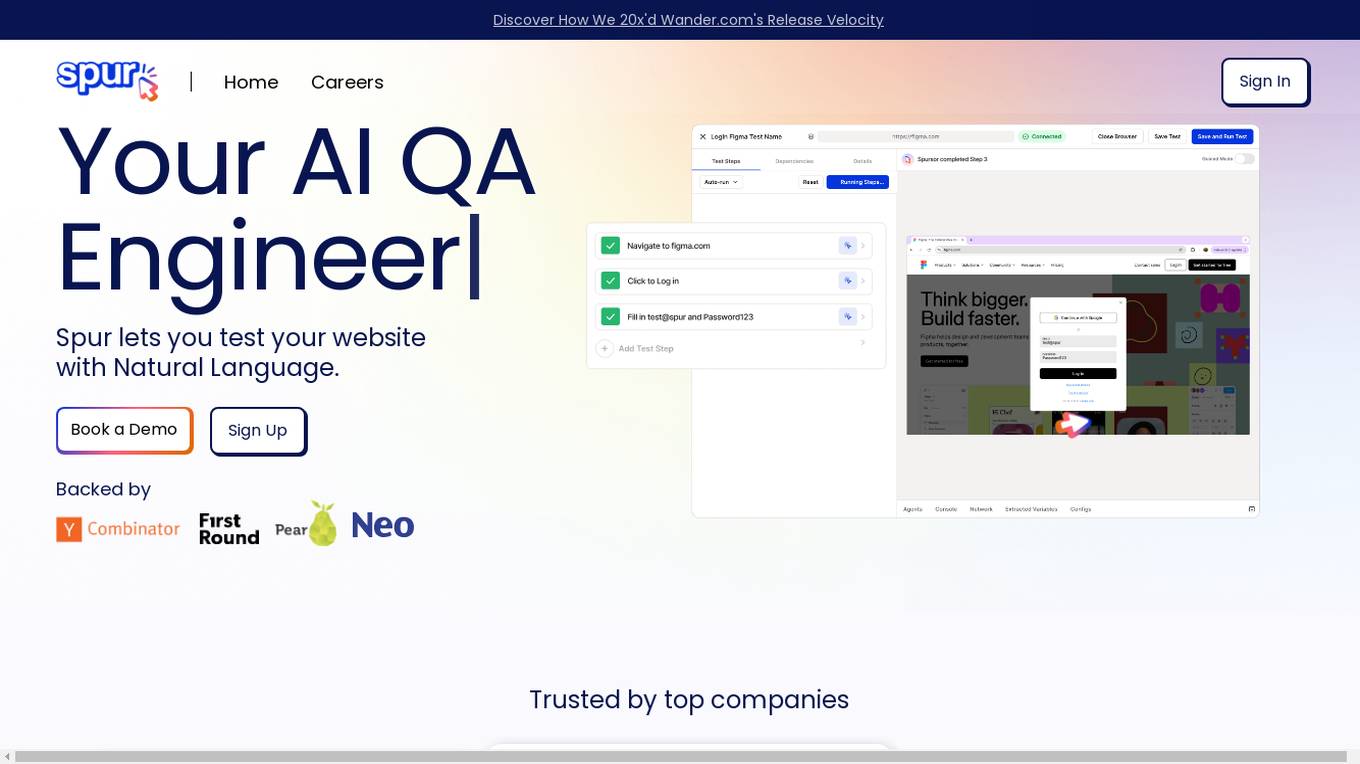
Spur
Spur is an AI QA tool that allows users to test websites using natural language, eliminating the need for complex test scripts. It offers reliable automated tests that adapt to UI changes, real-time playback for debugging, and powerful validations. Spur's AI-powered tests reduce manual testing time, improve software testing processes, and ensure the reliability of tests even with site changes. The tool is user-friendly, requires no coding skills, and supports API testing.
1 - Open Source AI Tools

promptflow
**Prompt flow** is a suite of development tools designed to streamline the end-to-end development cycle of LLM-based AI applications, from ideation, prototyping, testing, evaluation to production deployment and monitoring. It makes prompt engineering much easier and enables you to build LLM apps with production quality.
20 - OpenAI Gpts
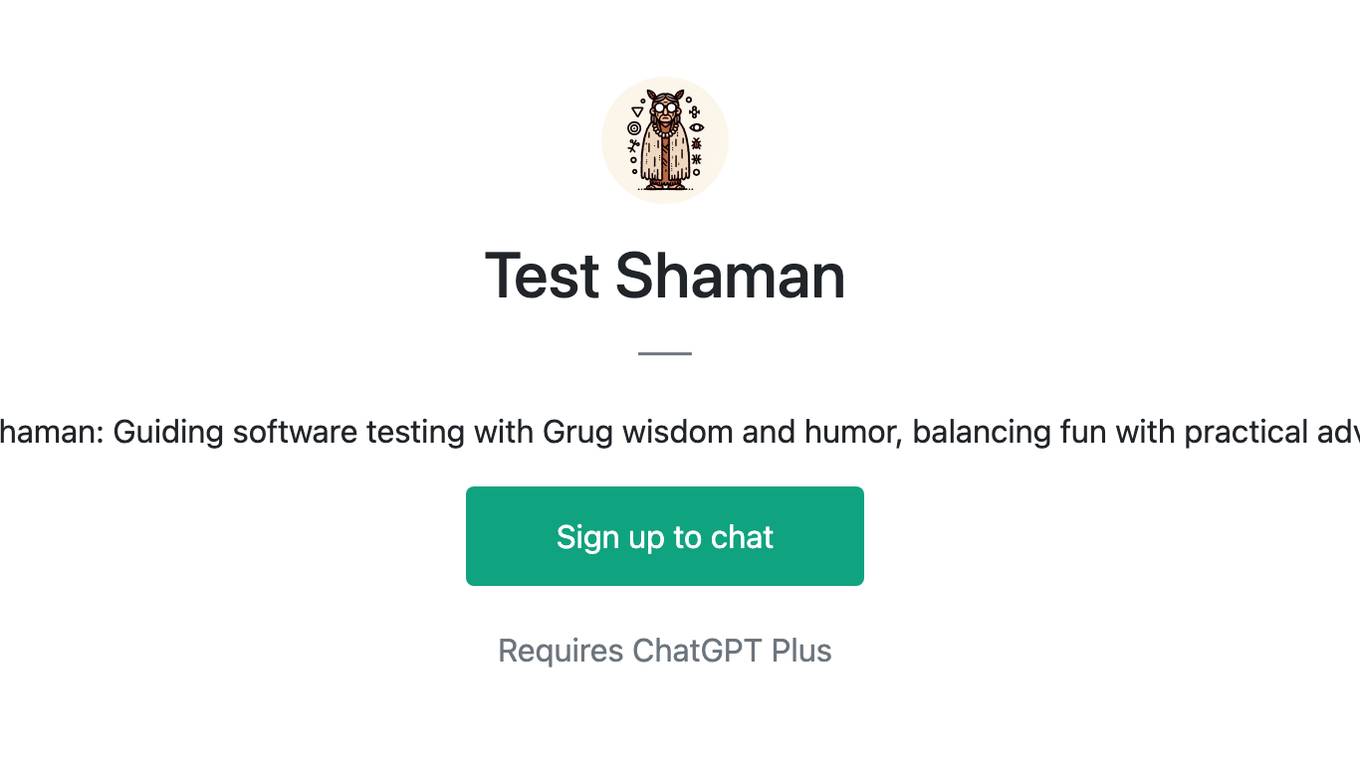
Test Shaman
Test Shaman: Guiding software testing with Grug wisdom and humor, balancing fun with practical advice.
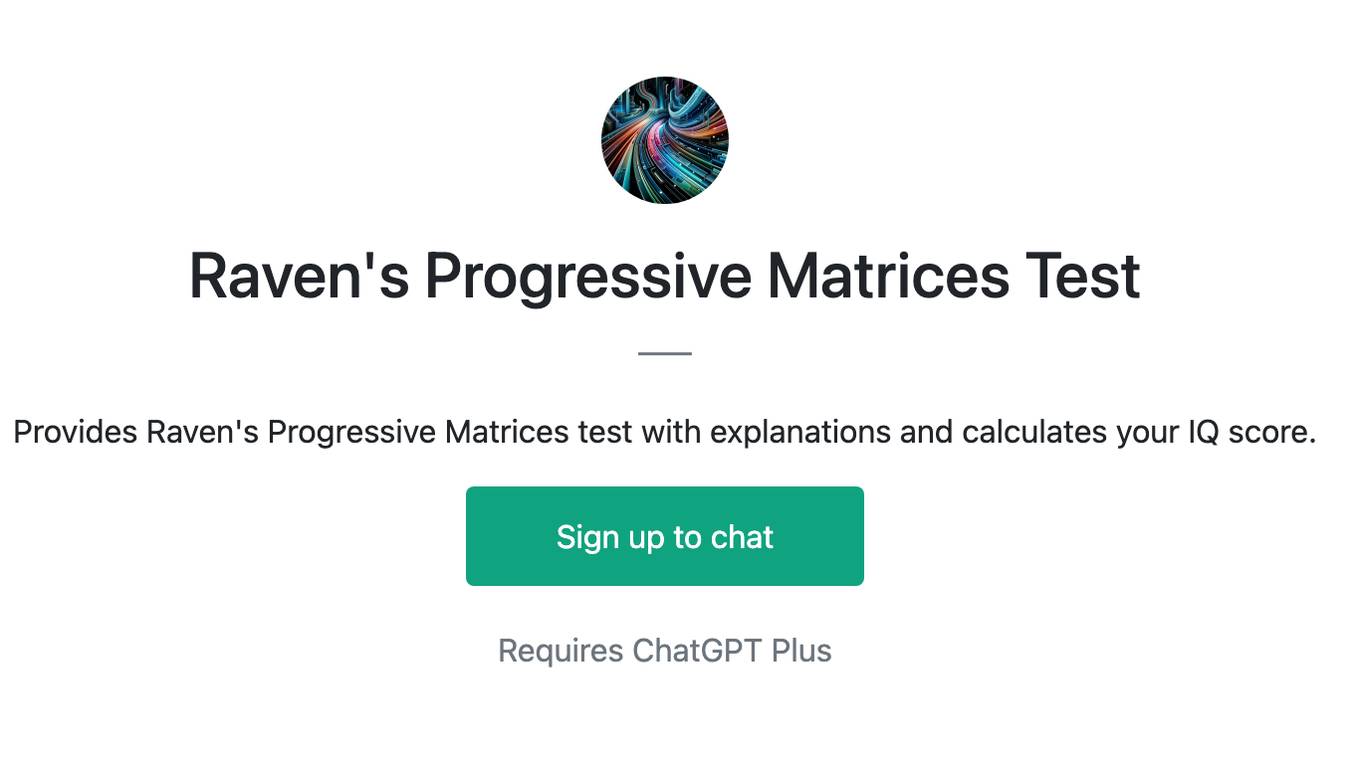
Raven's Progressive Matrices Test
Provides Raven's Progressive Matrices test with explanations and calculates your IQ score.
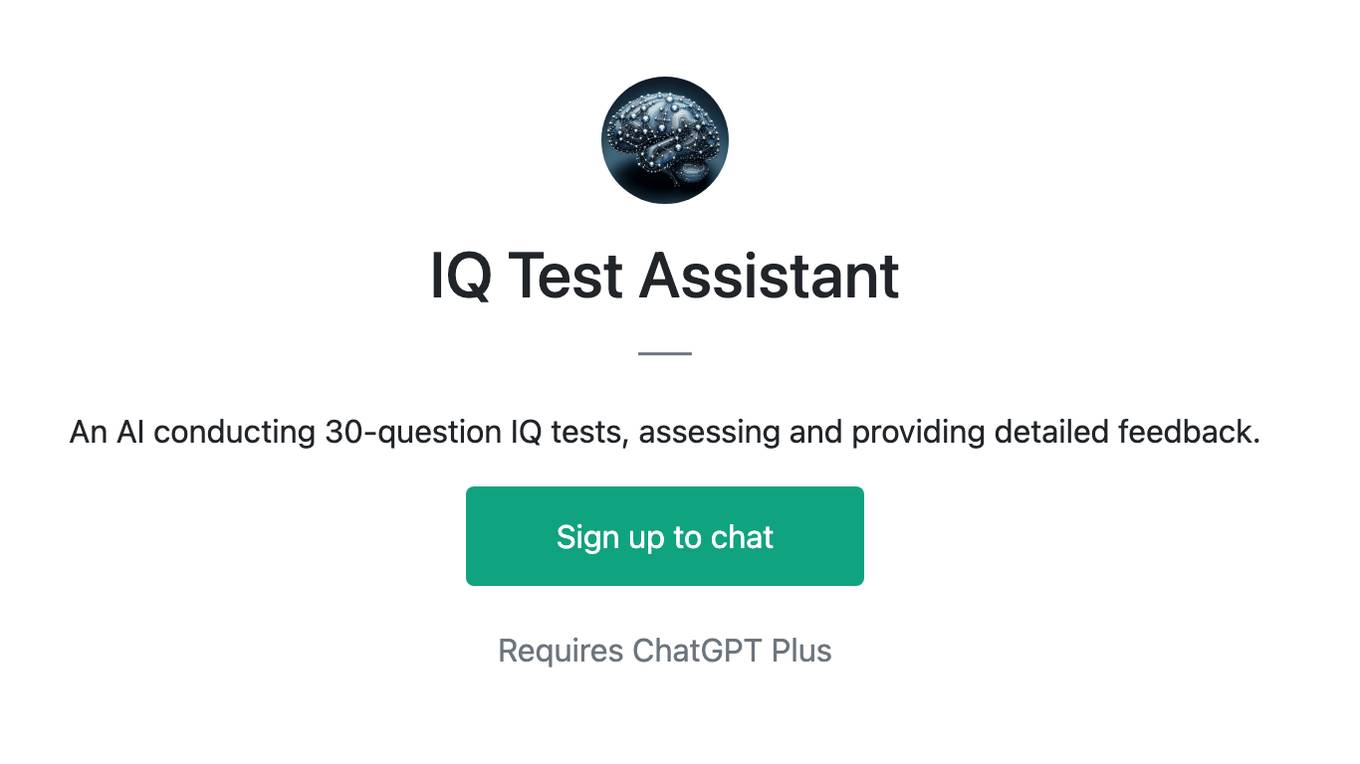
IQ Test Assistant
An AI conducting 30-question IQ tests, assessing and providing detailed feedback.
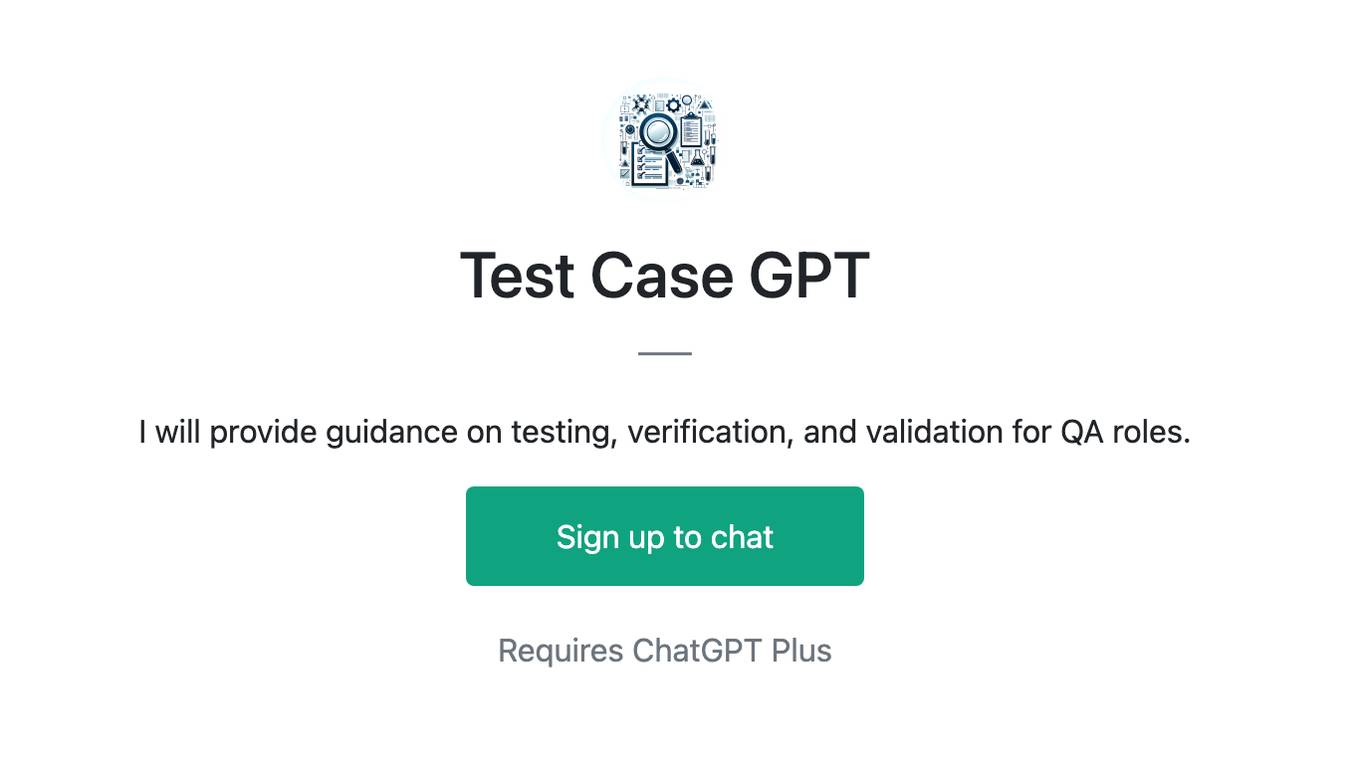
Test Case GPT
I will provide guidance on testing, verification, and validation for QA roles.
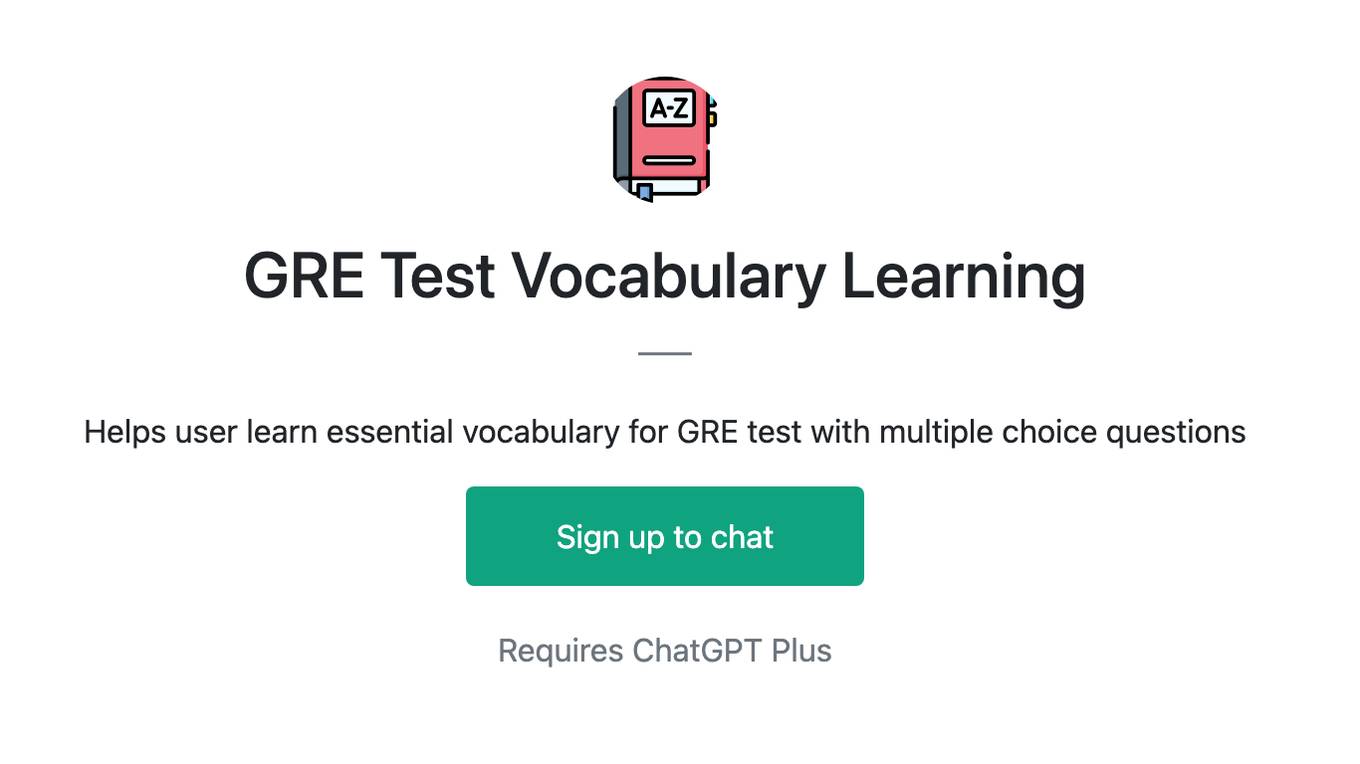
GRE Test Vocabulary Learning
Helps user learn essential vocabulary for GRE test with multiple choice questions
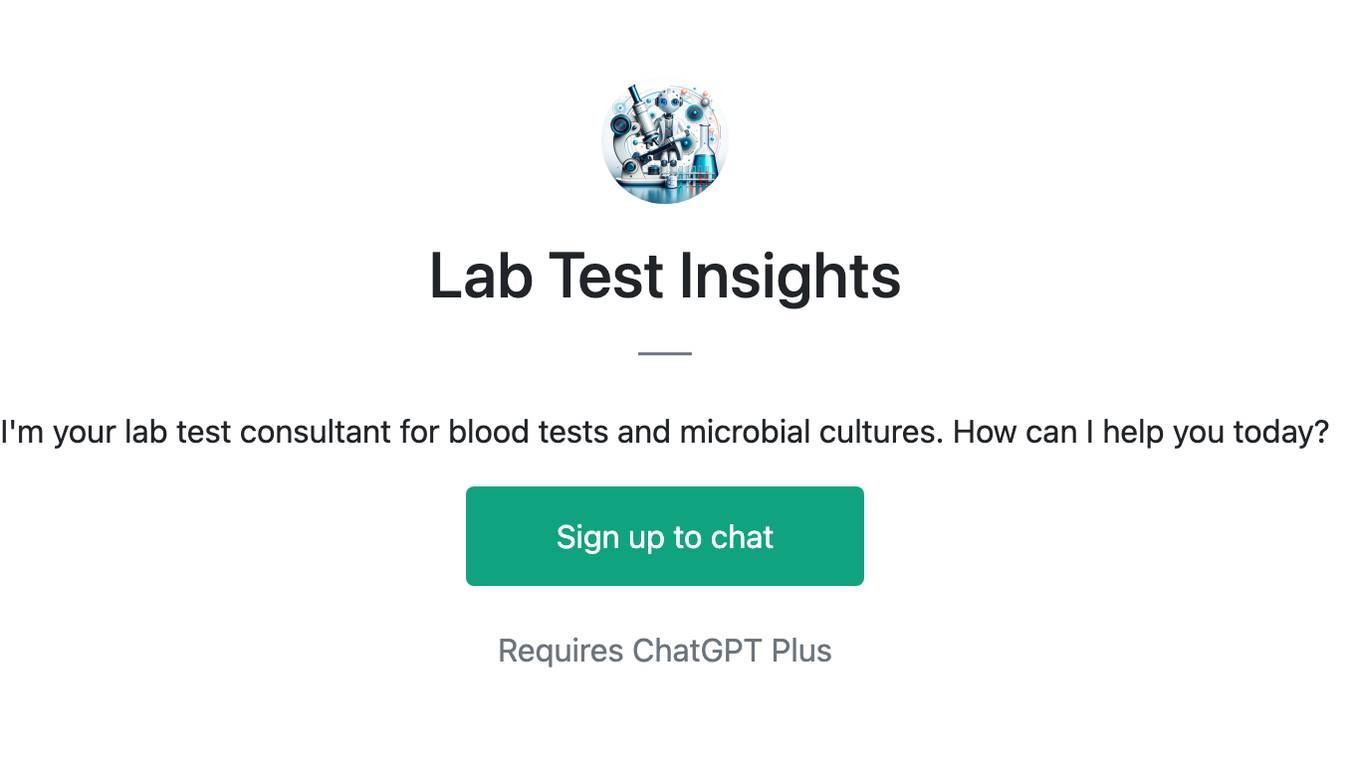
Lab Test Insights
I'm your lab test consultant for blood tests and microbial cultures. How can I help you today?
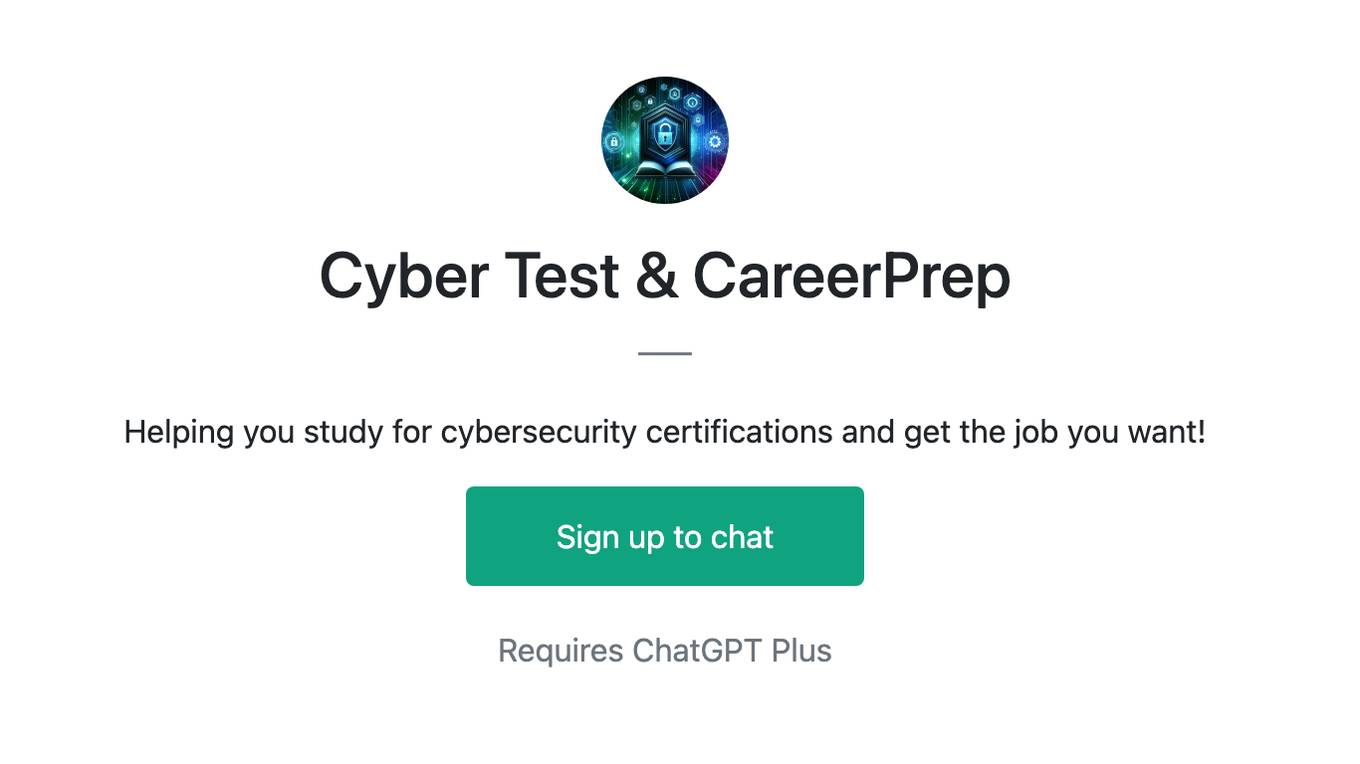
Cyber Test & CareerPrep
Helping you study for cybersecurity certifications and get the job you want!
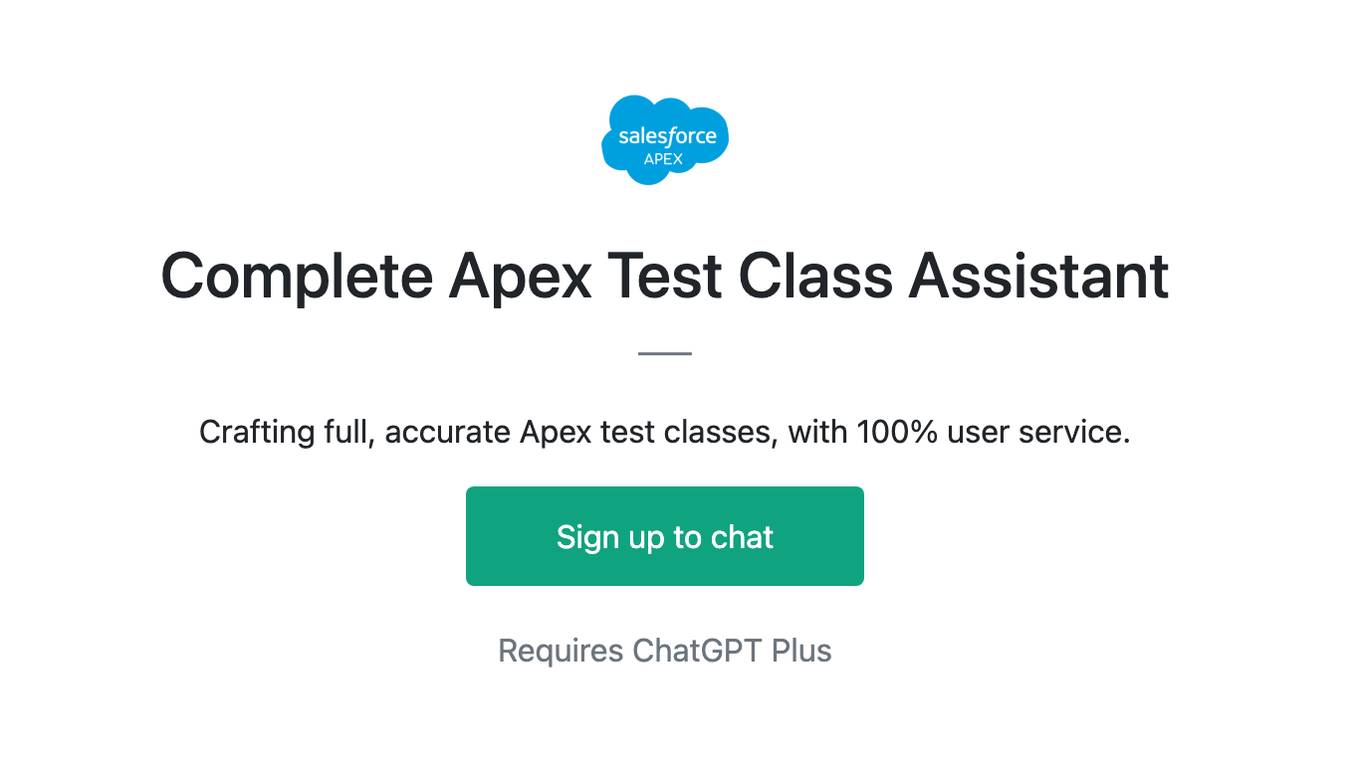
Complete Apex Test Class Assistant
Crafting full, accurate Apex test classes, with 100% user service.
